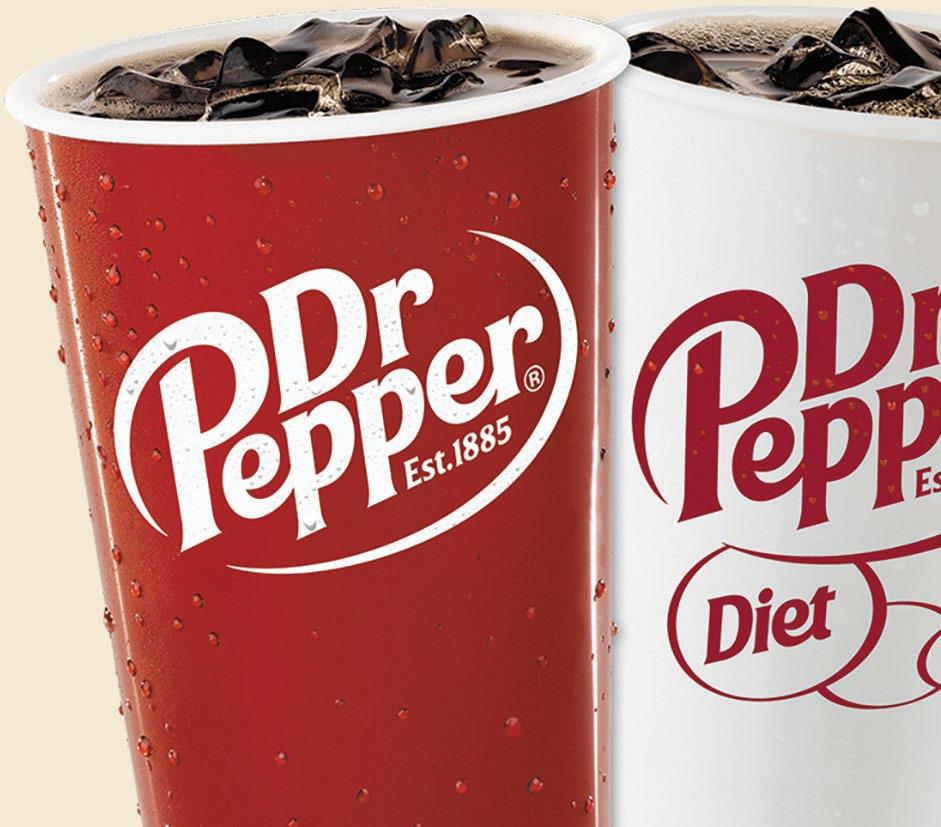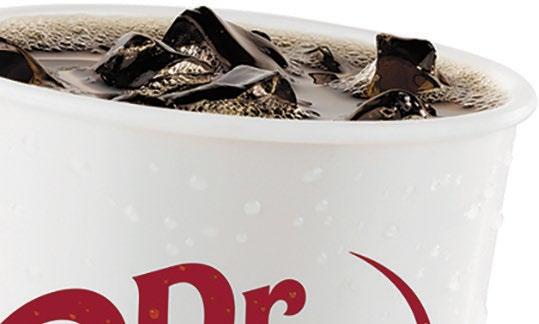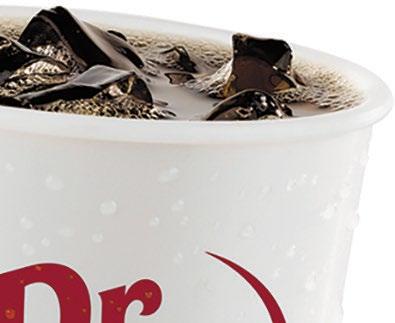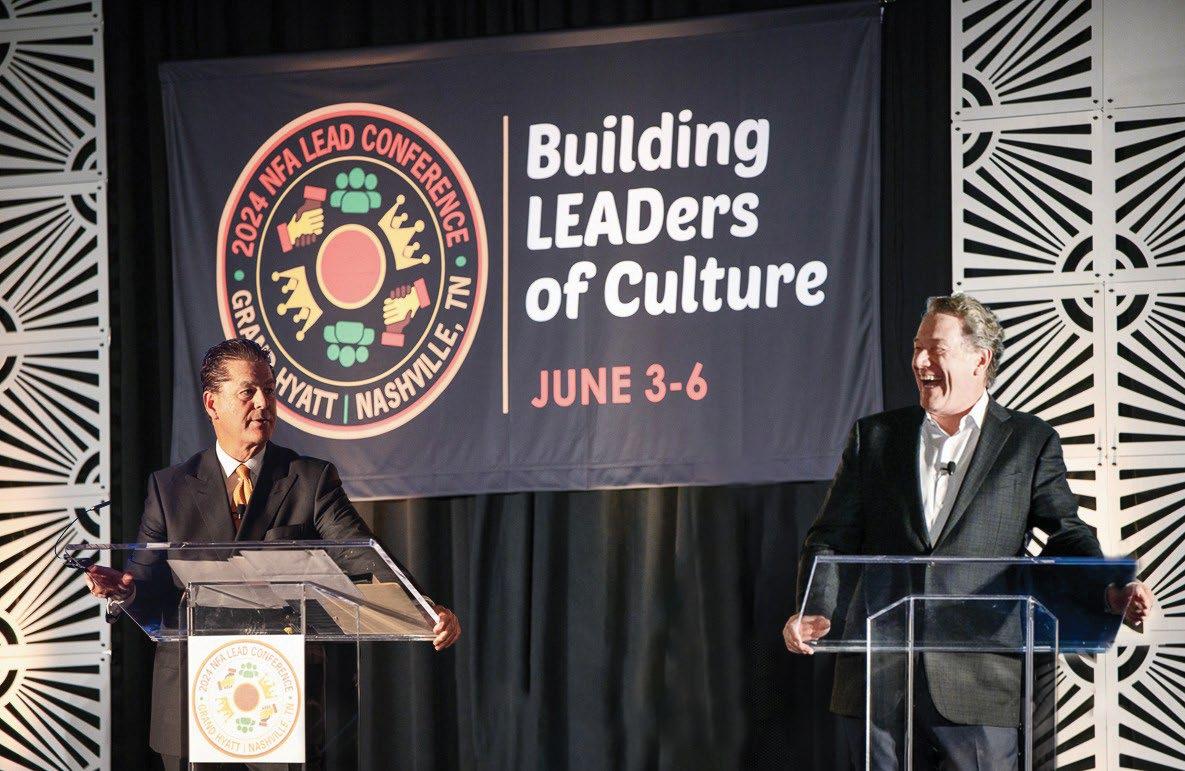






NFA Editorial Board
Rachel Jackson
Editor-in-Chief rachelj@nfabk.org
Jared Johnsen Communications Specialist jaredj@nfabk.org
Tyler Ryan Communications Editor tylerr@elevanta.com
Advertising Sales
Jeff Reynolds
Director of Business Partner Relations jeffr@nfabk.org
678-797-5163
NFA Officers
Dan Fitzpatrick
Chair
Jim Froio
Vice Chair
Anthony Josephson
Secretary
Steve Keith
Treasurer
Kevin Newell
Second Vice President
Christy Williams
CEO
NFA Board of Directors
CANADIAN FRANCHISEE ASSOCIATION
Mike Kitchingman
FLORIDA/CARIBBEAN
Russ Lo Bello
GREAT MIDWEST
Rich Scanlan
Henry Delouvrier
Mark Peterson
GREAT WESTERN
Nasser Aliabadi
Amir Allison
Gary Geiger
INTERNATIONAL HISPANIC FRANCHISEE ASSOCIATION
Adam Velarde
LARGE FRANCHISEE GROUP
Tom Garrett
METRO NEW YORK
Sanjay Patel
MID-ATLANTIC
Gary Andrzejewski
MID-SOUTH
Kevin Newell
Mike Callahan
Kevin Fernandez
Larry Stokes II
MINORITY FRANCHISEE ASSOCIATION
Camille Lee-Johnson
NEW ENGLAND
Brek Kohler
OHIO RIVER
C.J. Timoney
Josh Lephart
SOUTHERN CALIFORNIA
Shirley Humerian
SOUTHWEST
Michael Laird
Design and Layout
KT Graphic Design
Kristen Thomas ktgraphicdesign@gmail.com
2024 Issue 2
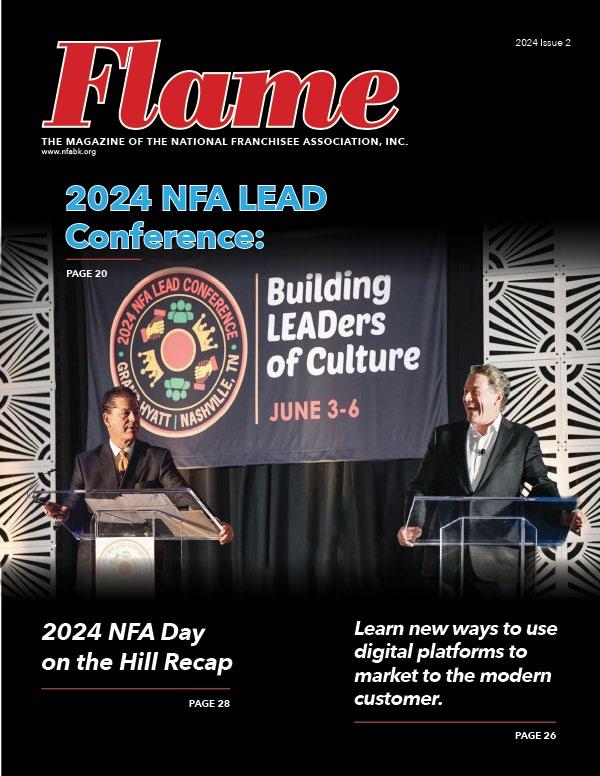
The 2024 NFA LEAD Conference took place in Nashville, Tennessee, where attendees enjoyed educational sessions led by industry professionals, including esteemed figures such as RBI Executive Chairman Patrick Doyle, experts from Heidrick & Struggles and Laura Stack, The Productivity Pro. Turn to page 20 for a recap of the conference with pictures of presentations, the Welcome Dinner, awards and more!
and Revitalized Leadership by Dan Fitzpatrick, NFA chair
NFA LEAD Conference: A Time for Development, Networking and Celebration by Christy Williams, CEO
Support the Vendors That Support Your Association
Editorial Calendar and Advertisers Guide
= Inside Back


Music City
26 Marketing Your Franchise & Building a Local Brand by Jared Johnsen, NFA communications specialist
28 2024 NFA Day On the Hill Unites Franchisees on Capitol Hill During Pivotal Moment
33 Congrats to the Class of 2024 BK® Scholars! contributed by The Burger KingSM Foundation
34 Employers Need To Review Workplace Rules and Policies Following Recent NLRB Decisions by Matthew Guerrero, Laner Muchin
36 Avoiding the Gutter: How Not To Embarrass Your Customers by Danny Snow, Snow & Associates Inc.
38 Thoughts on Excellence: Five Sustained Focused Efforts by Dan Coughlin, The Coughlin Co.
40 The Process Pressure Points Are Personal by David Allen, Getting Things Done
42 Understanding the 2024 Beneficial Ownership Reporting Requirements: What U.S. Businesses Need To Know contributed by Mize CPAs
44 Why Franchises Like Yours Need Business Owner ’s Insurance contributed by Lockton Cos.
46 Creating Security Culture Through Awareness Training contributed by Restaurant Services Inc.
48 Burger King Gives Oil Management the Royal Treatment contributed by Restaurant Technologies Inc.


It seems to me that just a few days ago, we were celebrating graduations and the Memorial Day weekend. Summer is not just upon us, it seems like it is speeding by as well.
We kicked off our summer in early June with our fifth Annual National Franchisee Association (NFA) Leadership Exploration and Development (LEAD) Conference in beautiful Nashville, Tennessee. LEAD is a conference that is produced by NFA under the leadership of passionate franchisees. LEAD 2024 was a remarkable success and perhaps our best ever.
My congratulations and thanks go to Kevin Newell who chaired the LEAD Conference. I also recognize Keith Egyed, Lindsey Bond, Russ Lo Bello, Maruti Seth and Bob Reid, who served with Kevin on the Committee. And, of course, none of this would have been possible without the support and energetic efforts of Christy Williams and our NFA Staff.
The LEAD Conference is designed for above restaurant leaders and franchisees focusing on reenergizing leadership skills. Leadership is clearly distinct from management. Virtually every day, our management skills are required to operate restaurants. Management emphasizes tasks and programs that must be executed day in and day out. Management systems are intricate, hardwired networks which allow us to efficiently and effectively operate.
Conversely, leadership is an aspirational art – it is something that each one of us can do but requires an inner strength and desire to bring people together and inspire them to achieve results which likely could never be realized as individuals.
Throughout the conference, attendees were benefitted by outstanding speakers who focused on the very core of effective
leadership. These speakers were inspirational, relatable and provided down-to-earth, easy-to-understand concepts. For some, the LEAD Conference was an opportunity to recharge their batteries. For others, it was an awakening to a new way of thinking about the important role of leadership. As one speaker remarked, our organizations need good management, but the world is starving for great leadership in nearly every walk of life.
The LEAD Conference also offered an opportunity for RBI’s Non-Executive Chairman, Patrick Doyle, to meet with us. Patrick offered wide-ranging comments on our business, his experience and background and the challenges and success he has enjoyed over his career. Patrick’s remarks were well-received and found to be quite interesting and helpful. In addition to a few franchisees leading presentations, we also enjoyed professional speakers who provided outstanding insights, tips and tools which we were all grateful for.
The other benefit of LEAD is that it allows substantial time for the attendees to gather outside of structured presentations and to share their individual situations and challenges as well as best practices. All of this creates a great environment in order for attendees to be better leaders when they returned home. Several franchise organizations brought multiple leaders to the Conference which allowed those teams to strengthen their bonds, resulting in more effective team leadership for their businesses.
As your NFA chair, I could not have been more proud of the high-quality nature of the entire LEAD Conference, from the point of registration to the final goodbyes. The general sessions, the vendor partner hall, the food service and the social gatherings were all first class in every respect.


by DAN FITZPATRICK
Many of the attendees commented to me personally how grateful they were to have this opportunity to professionally grow and to enjoy the camaraderie of colleagues. The ongoing challenges of our business are always present. However, it is events and experiences such as the LEAD Conference which bolster our capabilities and strengthen our system. If you have not had the opportunity to attend LEAD in the past, I encourage you to be on the lookout for next year’s conference which will again be an outstanding conference in 2025.
I wish for everyone an enjoyable, safe and prosperous end to the summer.
Sincerely.
Dan Fitzpatrick


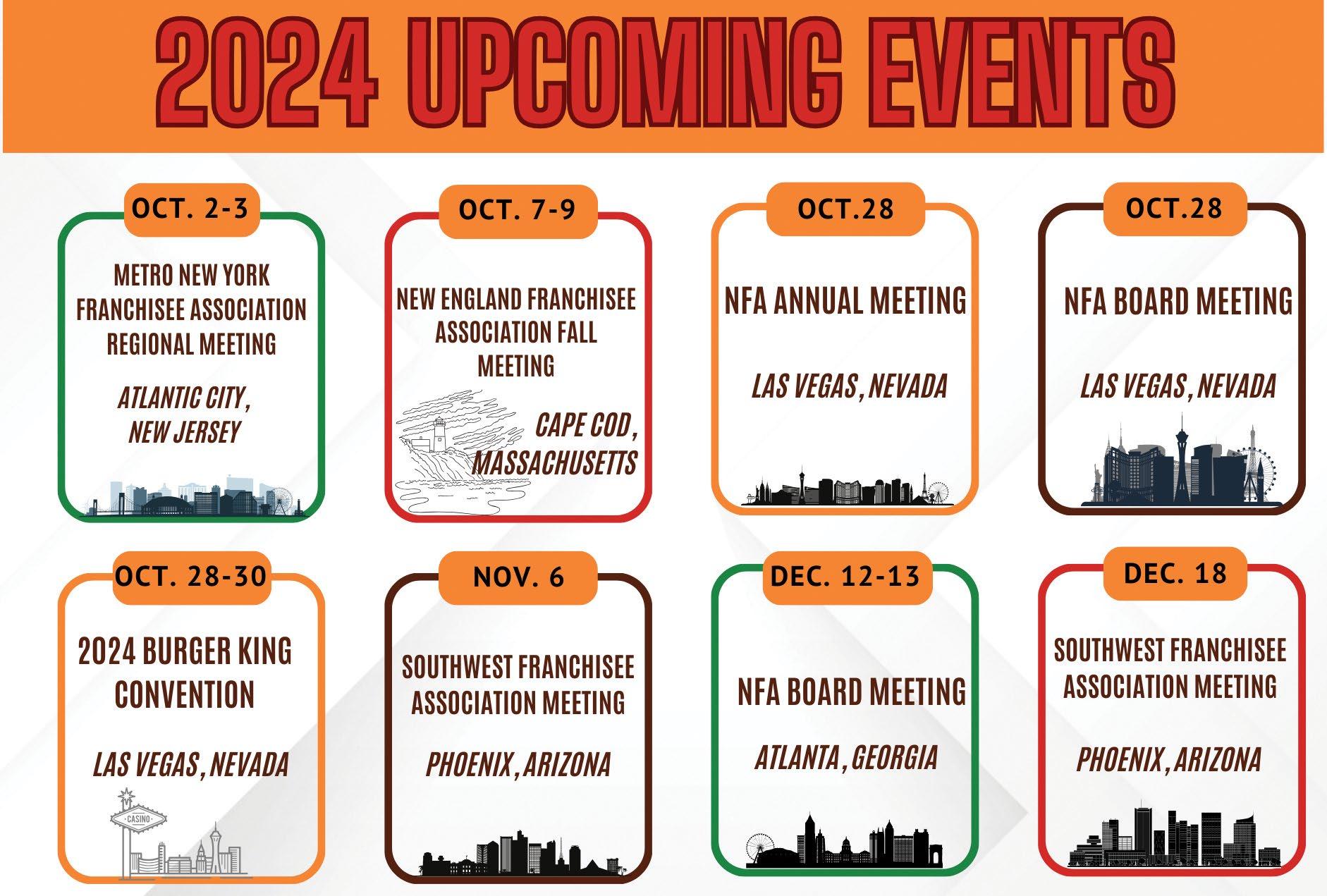
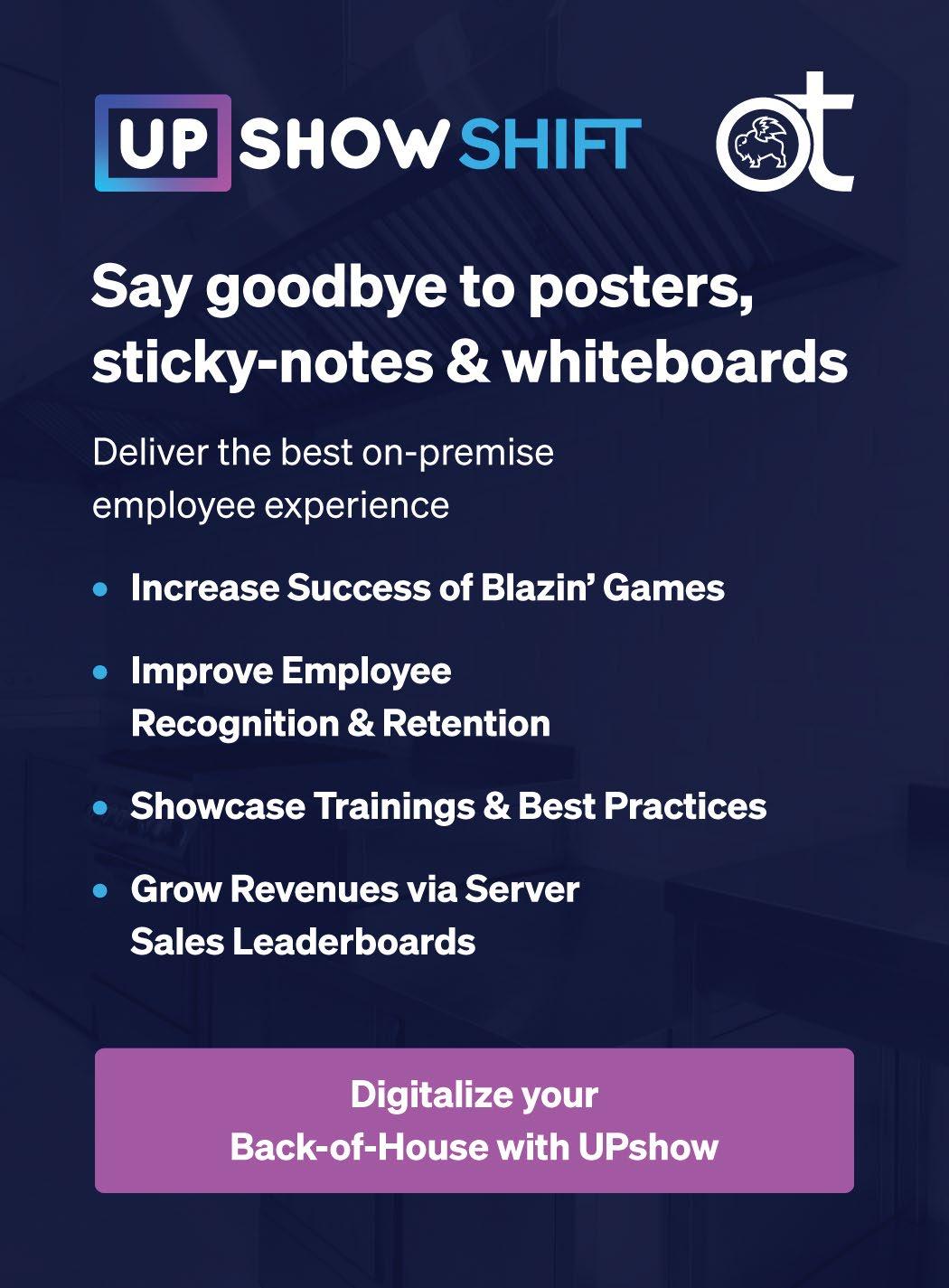




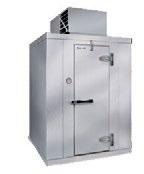


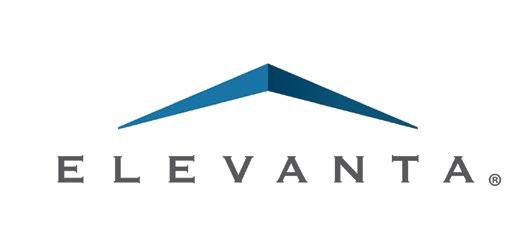
Aswe concluded our fifth National Franchisee Association (NFA) Leadership, Exploration and Development (LEAD) Conference in Nashville this June, it brought about many emotions and ideas. The idea for this event began as NFA rolled out CORE in 2017 and we took a leap of faith in 2018 by implementing a plan to bring this new opportunity to the franchisee community.
In five short years, including overcoming a pandemic and holding the first large in-person event post-COVID-19 in Las Vegas, LEAD has become an annual event everyone looks forward to. The atmosphere each year is nothing short of inspiring. The above restaurant leaders who attend this event are grateful and appreciative of the opportunity provided to them by our franchisee members.
This event is the epitome of what NFA is all about. NFA identified a need among the franchisee community and acted upon it to deliver not only CORE, but a full conference dedicated to developing and rewarding your most important asset: your PEOPLE! Months of work go into LEAD each year with many volunteers behind the scenes. The NFA Executive Officers realize the importance of LEAD and make it a key focal point of NFA. A team of volunteers work with NFA staff a year in advance, brainstorming, planning and implementing an agenda that will leave our attendees excited, motivated, eager to return to restaurants and effect change and hopeful they are approved to attend future LEAD conferences.
This year’s LEAD committee was Chaired once again by Kevin Newell, along with former LEAD Chair Keith Egyed. In addition, the returning committee members were Lindsey Bond, Bob Reid and Russ Lo Bello. New to the committee


for 2024’s event was Maruti Seth. Each committee member dedicated countless hours to conference calls, reviewing speaker options, engaging in calls with speakers, assisting with vendor commitments and so much more. This conference would not be possible without these leaders!
While there are many remarkable moments from this year’s LEAD conference, my favorite was seeing the winners of this year’s Flame Hall of Fame Awards! Re-engineered this year with a slightly different format and name, I witnessed first-hand the surprise of many of these award winners walking down the hall to see their name and photo on a poster with their teams waiting to congratulate them. To witness the applause, tears and pure joy of both the award winners and the teams who work together each day was awe-inspiring and left me feeling proud of the work NFA is doing to provide this amazing opportunity to the franchisee community.

by CHRISTY WILLIAMS
To witness the applause, tears and pure joy of both the award winners and the teams who work together each day was awe-inspiring and left me feeling proud of the work NFA is doing to provide this amazing opportunity to the franchisee community.
Can we improve LEAD? Absolutely! That is our collective goal every year. While we won’t always get everything right, I promise the vision and focus every single year is developing a conference the franchisee, ARL and business partner/vendor communities will look back on with a sense of accomplishment, hope and rejuvenation to continue to make your restaurants and the amazing BURGER KING® brand the best in the QSR industry!
We are working hard to finalize details for the 2025 and future LEAD Conferences. We expect this event will continue to grow and we are planning now to make your next LEAD experience better than ever. After 2024, that is a tall feat to achieve, but we know that with the dedicated LEAD Committee and support from the franchisee and vendor community, we will continue to deliver on this promise! n
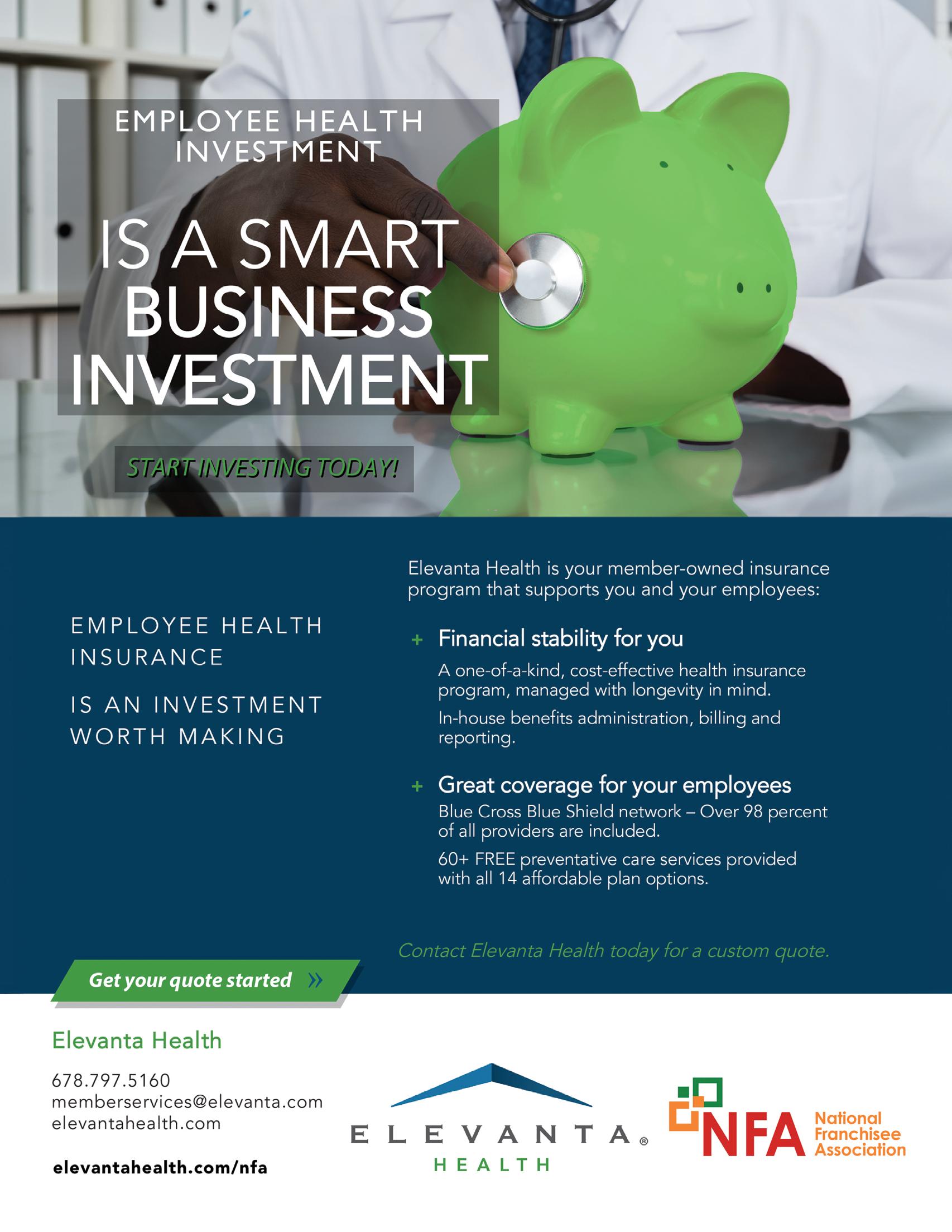


Howdifferent would the culture in our restaurants be if we took a moment to take a step outside the four walls of the store? What if we had a moment to thank our team members, to remind them they matter and to celebrate their accomplishments that drive our business each and every day?
For Dan and CJ Fitzpatrick, that “moment” is critical to their continued recipe for success.
“Leaders inspire by their aspiring leadership,” Quality Dining Inc. (QDI) Chairman and CEO Dan Fitzpatrick told a group of 50 senior restaurant managers, district managers and region managers gathered at a QDI BK Midwest leadership meeting earlier this summer. “This is the art of attaining success that is sustainable well into the future. It requires a strong culture, which requires strong and effective leaders.”
As they gathered in a meeting space inside the storied football stadium at the University of Notre Dame in South Bend, Indiana, Fitzpatrick went on to tell his leadership team, “Mediocrity is the quiet cancer that kills all that is good.” He detailed exactly how he wants each and every person in the room to focus on not being ordinary but instead, striving to be extraordinary.
“I want all aspects of your life to be extraordinary – as a manager, a leader, a parent, a spouse, a sibling or a friend. In all aspects, you must strive for a higher aim,” he continued.
Dan shared a story about a guest’s recent experience with an
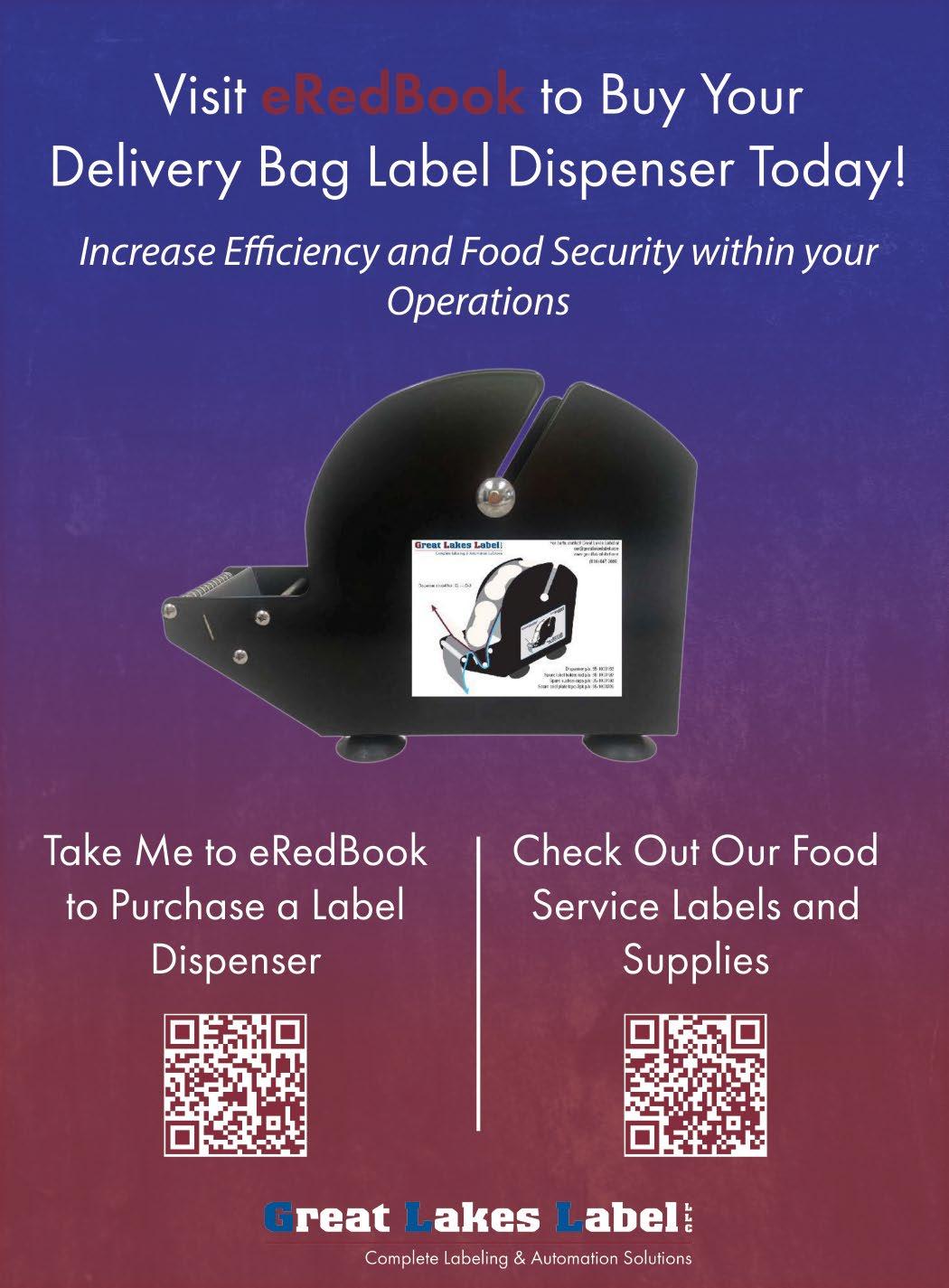




The guest, who goes by Mr. Whipple at his day job, drove through a QDI BURGER KING on his way to work on a Tuesday morning. He was running late, hungry and a little grumpy when he pulled up to the menu board at BK 6622 in South Bend.
Then a familiar voice came through the speaker, welcoming him to BURGER KING and introducing herself, “Good morning, this is Dorothea. What would you like to enjoy for breakfast?”
“Hi Dorothea,” he replied. “This is Dane! Do you remember me?”
As it turns out, long-time QDI Breakfast Manager Dorothea Allen did recognize the voice of a regular she had not seen in several years. She took Mr. Whipple’s order – two Croissan’wiches and a large Coke Zero – then asked him to pull around to the window. As he took out his wallet to pay, Dorothea informed Mr. Whipple she had already paid for his meal.
“God has been good to me and this is his way of having me pay it forward,” she explained to him.
Shocked by her generosity, Mr. Whipple also understood Dorothea’s sentiments, sharing his own calling to work in Catholic education. That’s when Dorothea asked Mr. Whipple if she could say a prayer. She outstretched her arm through the drive-thru window, held her guest’s hand and prayed with him.
“Dorothea was a much-needed shot of adrenaline for me that morning,” Mr. Whipple said after the fact. “She has the bubbliest personality ever. Always smiling. Always so friendly. If we had more people like Dorothea in this world, it would certainly be a better place.”
“You have a sacred responsibility to be a good manager and an extraordinary leader,” Dan told his leadership team, after sharing that story.
At the same meeting, restaurant leaders also received updates from their internal QDI support teams – including training and development, marketing, landscaping and maintenance initiatives and several planned remodels. The team also received recognition for years of service to Quality Dining and new sales records attained over the previous 12 months.
“It is imperative to bring our leadership teams together at least once a year,” explained CJ Fitzpatrick. “We have to tell them they belong at QDI. We have to impress upon them that they are appreciated, wanted and important to our culture. How else will that message be relayed to the rest of our team if we are not impressing it upon the managers in charge of our business every day?”
The QDI team ended the meeting with an exclusive tour of the Notre Dame football team locker room and a chance to touch the famous Play Like a Champion Today sign before heading to the historic football field for a team picture... a fitting end to an extraordinary day of gratitude, inspiration and celebration. n
It is important to BURGER KING® operator JSC Management Group (JSC) to engage with the people in its community. As a small part of their grand scheme, the hospitality group, owned by franchisee James Cammilleri, wanted to get involved more with local schools by rewarding students for their success.
To do so, JSC Management Group created incentivized student achievement coupons to reward them for good deeds and academic excellence. They are given to teachers and administrators of local schools to hand out when appropriate.
“The schools in our community love this program, and we always enjoy seeing children redeeming the voucher,” said JSC Management Marketing Director Nikki Cammilleri.
Often leading to an adult purchasing a meal or more, Cammilleri said the coupons are a great way to get customers in the door.
“The schools in our community love this program.”
– Nikki Cammilleri, JSC Management marketing director
With the program going three years strong, JSC intends to expand the program to more schools in its respective areas and wants to increase marketing efforts towards them as well. n






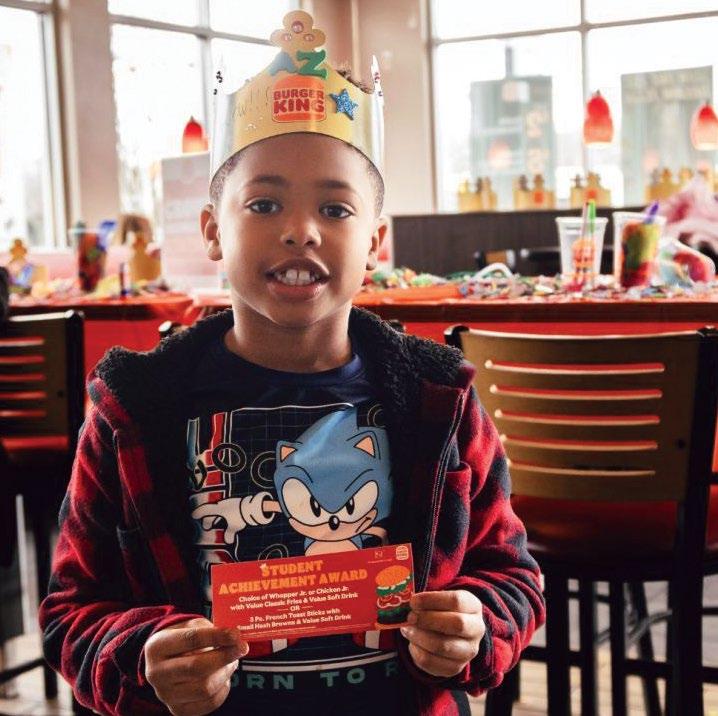

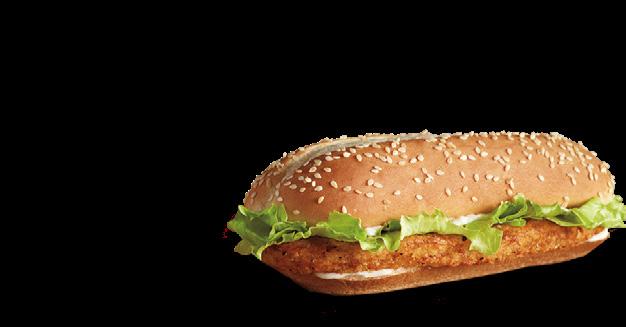
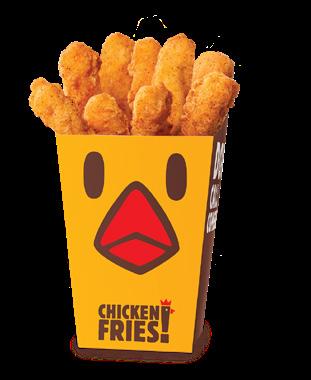
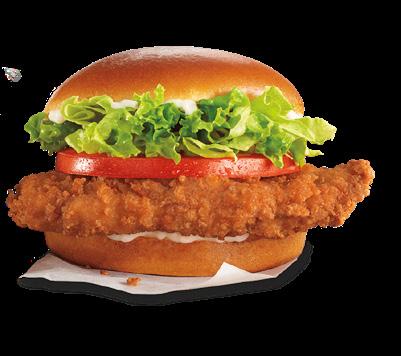
Over the years, Tyson Foodservice and Burger King have collaborated on successful poultry launches that have become core menu staples and customer favorites. This includes finishing touches like bacon and tortillas. It is an honor to team with Burger King and partner in these crowning achievements.





KING® franchisees Stan Paulauskas, Bonnie Hemrajani, Eric Cromwell and Brenden Kane accepted donations at their combined 27 locations to raise $30,000 for the veteran nonprofit Honor Flight during the month of February.
The franchisees held a point-ofsale donation and coupon campaign, asking customers if they would like to donate a dollar to the cause with each transaction. In return, they would receive a coupon worth over $4.
The veterans who flew on the May 2024 flight that was funded by the efforts of BURGER KING franchisees.
Honor Flight is a nonprofit devoted to honoring veterans by transporting them to the memorials of the respective wars in which they fought. Twice a year, Honor Flight flies 50 veterans with chaperones to Washington, D.C., at no cost to the veterans.
Two local hockey teams, the Hartford Wolfpack and the Springfield Thunderbirds, provided coupons and signage during
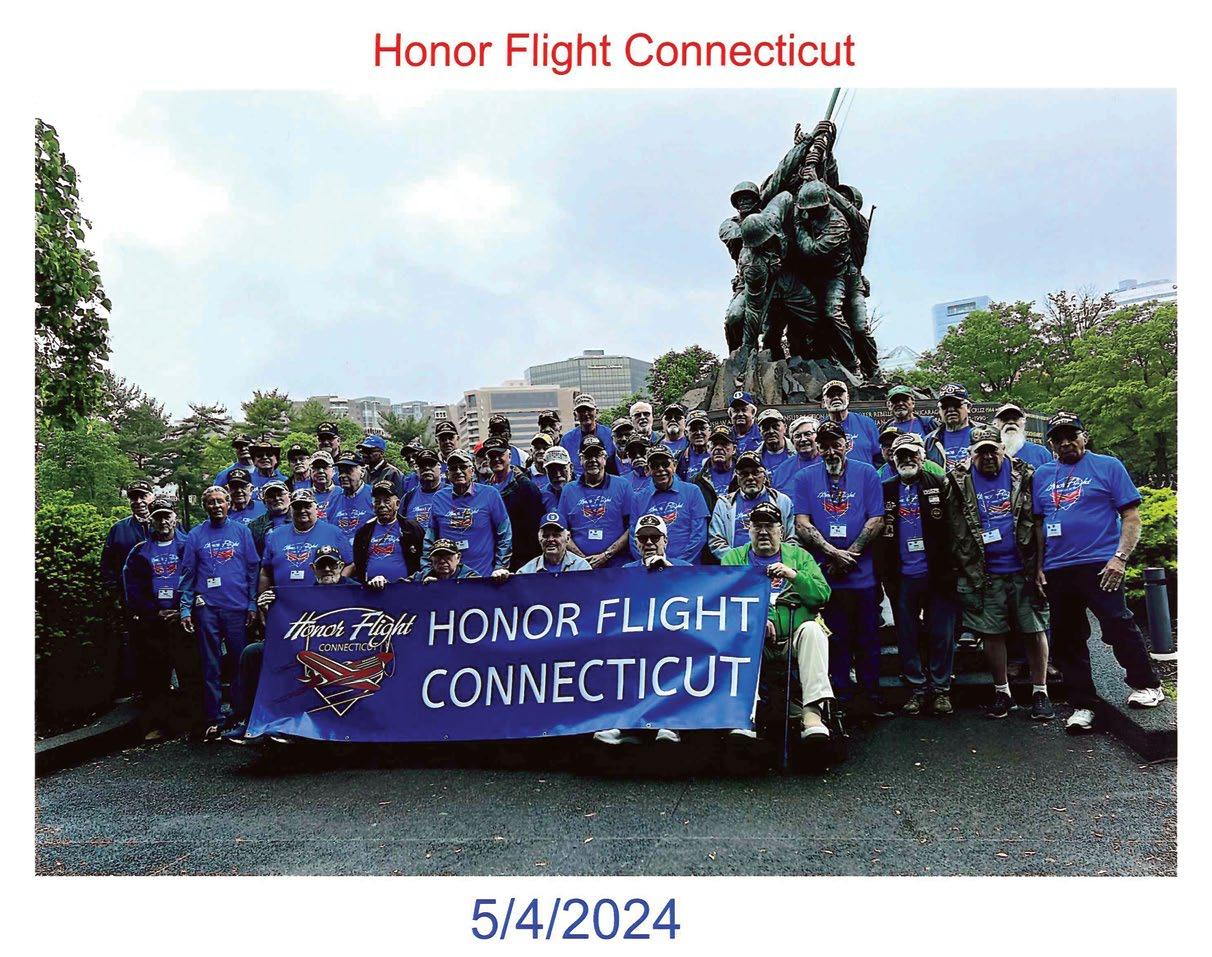
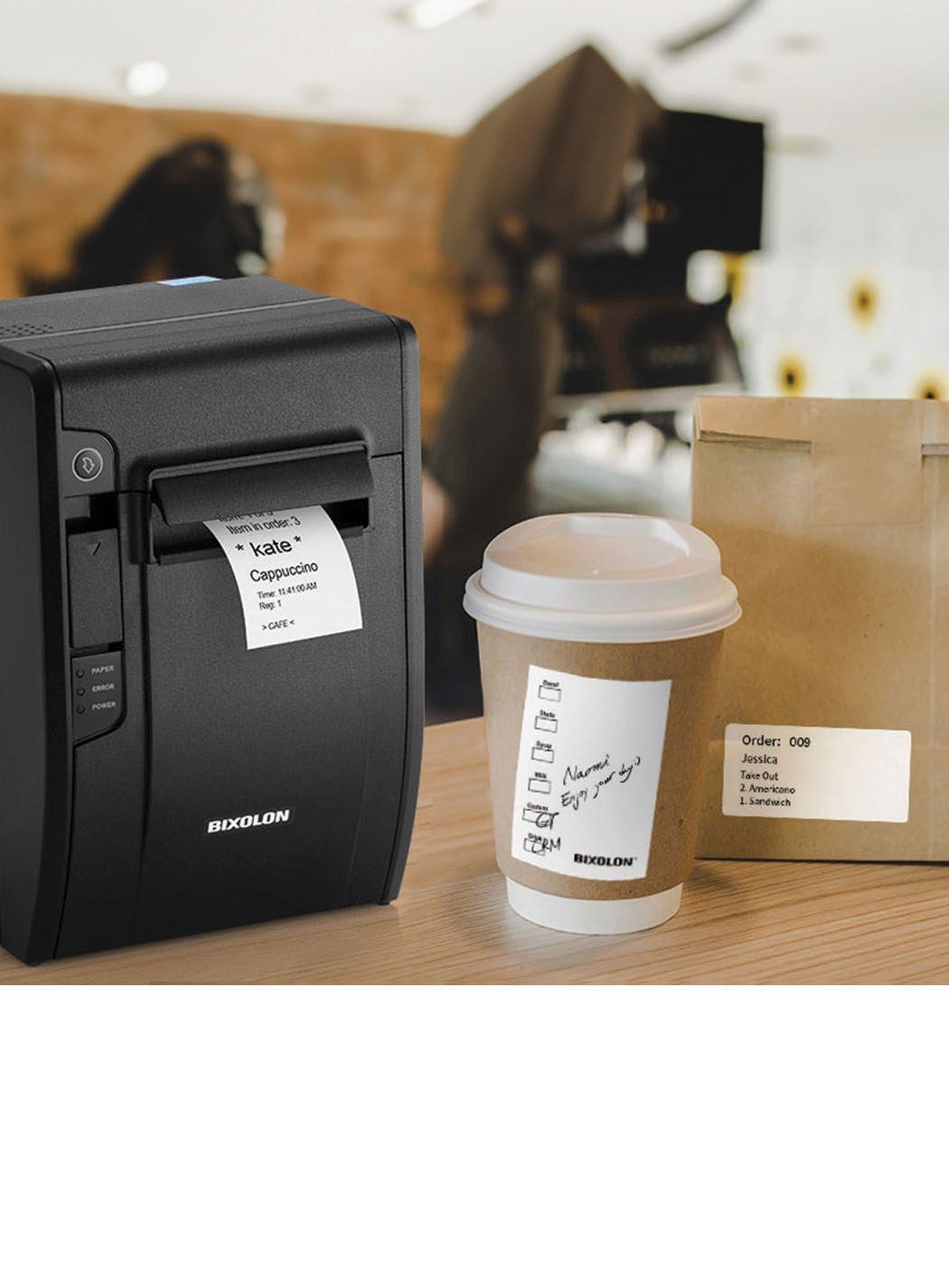


franchisees, they have become Honor Flight's top contributors and have made a difference in the lives of those who served. n
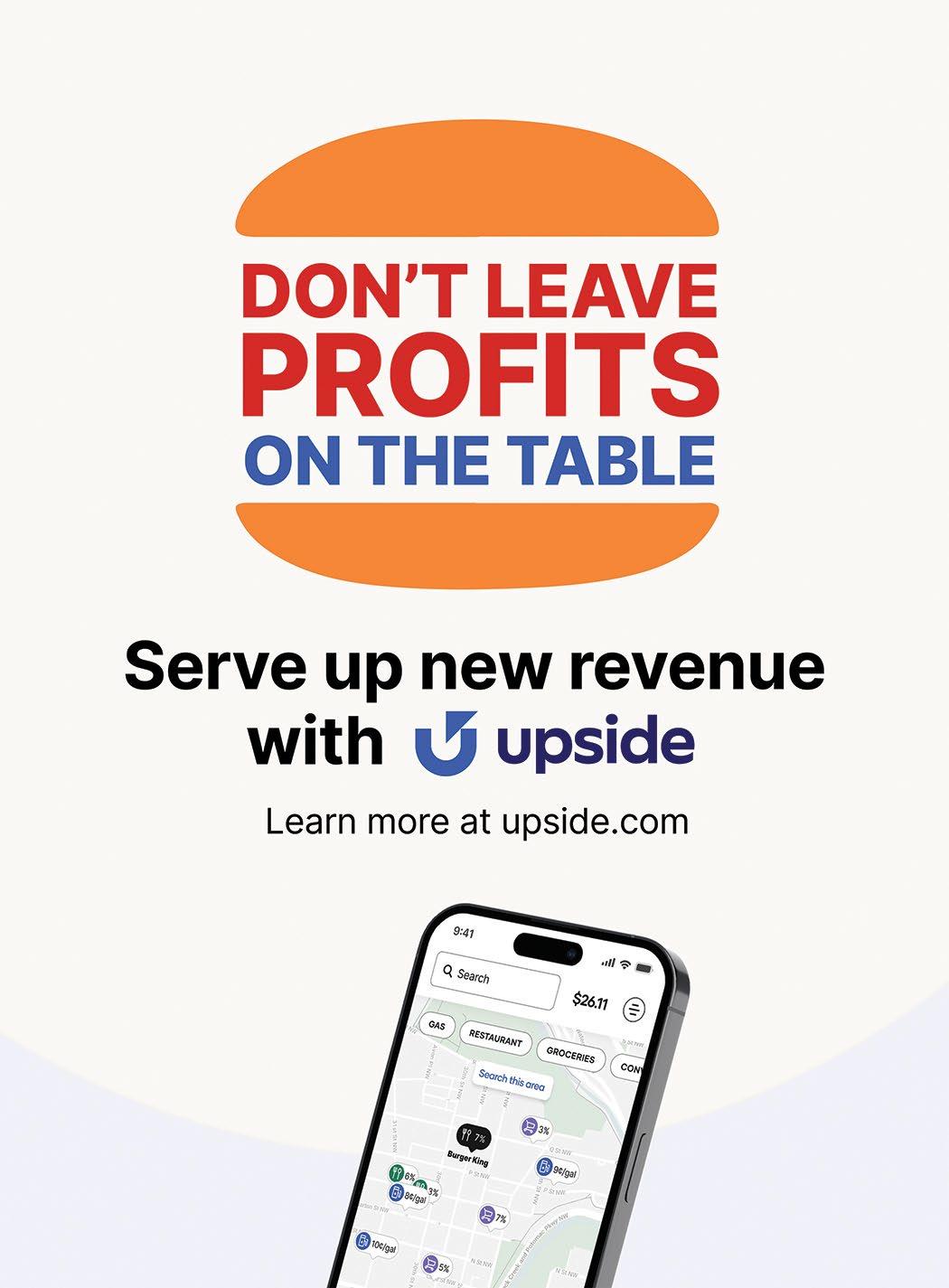
KING® franchise PEC Management shined through the 2024 Solar Eclipse with playful local marketing and employee engagement.
At the Erie, Pennsylvania, location, staff sported specially designed T-shirts for one day showing their excitement for the rare solar phenomenon. Under the leadership of general manager Christine Swanson, a 37-year BURGER KING veteran, the shirts featured a WHOPPER eclipsing the sun, complete with the slogan “A WHOPPER of an Event!”
“The shirts, which delighted customers and sparked conversations, highlighted the community-focused atmosphere our community is known for,” said PEC Management operator Keith Egyed. “The playful design not only brought smiles but also helped unify both staff and spectators under the darkening sky.”
There is no telling when another cosmic event like this will reoccur, but PEC Management will certainly be ready the next time one does. n
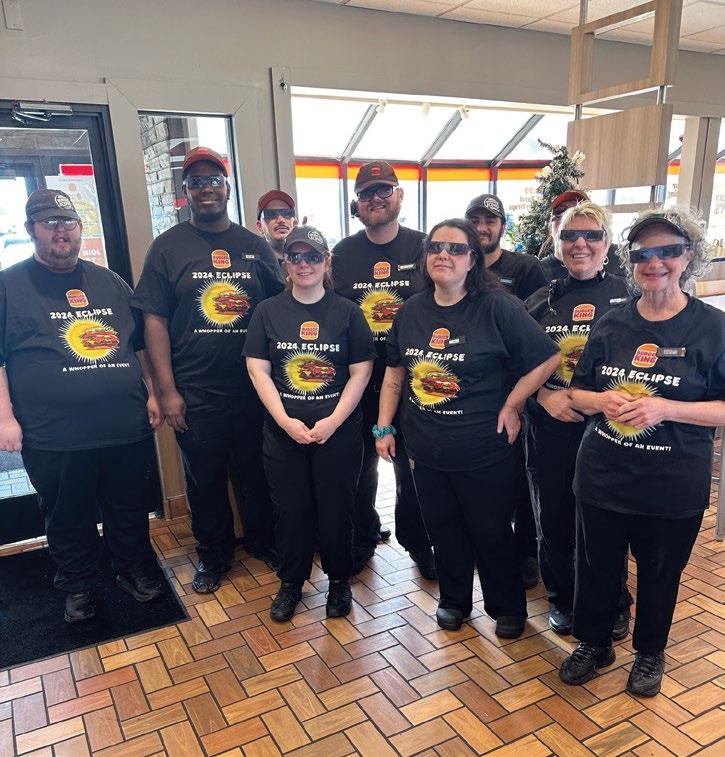












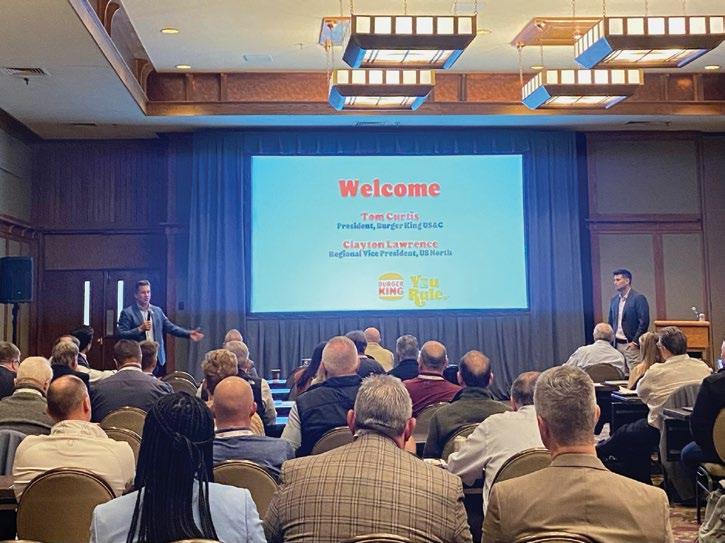
The Ohio River Coalition (ORC), Mid Atlantic Franchisee Association (MATFA) and the Great Midwest Coalition (GMWC) kicked off their joint meeting March 25-27, in Asheville, North Carolina, at the Omni Grove Park Inn.
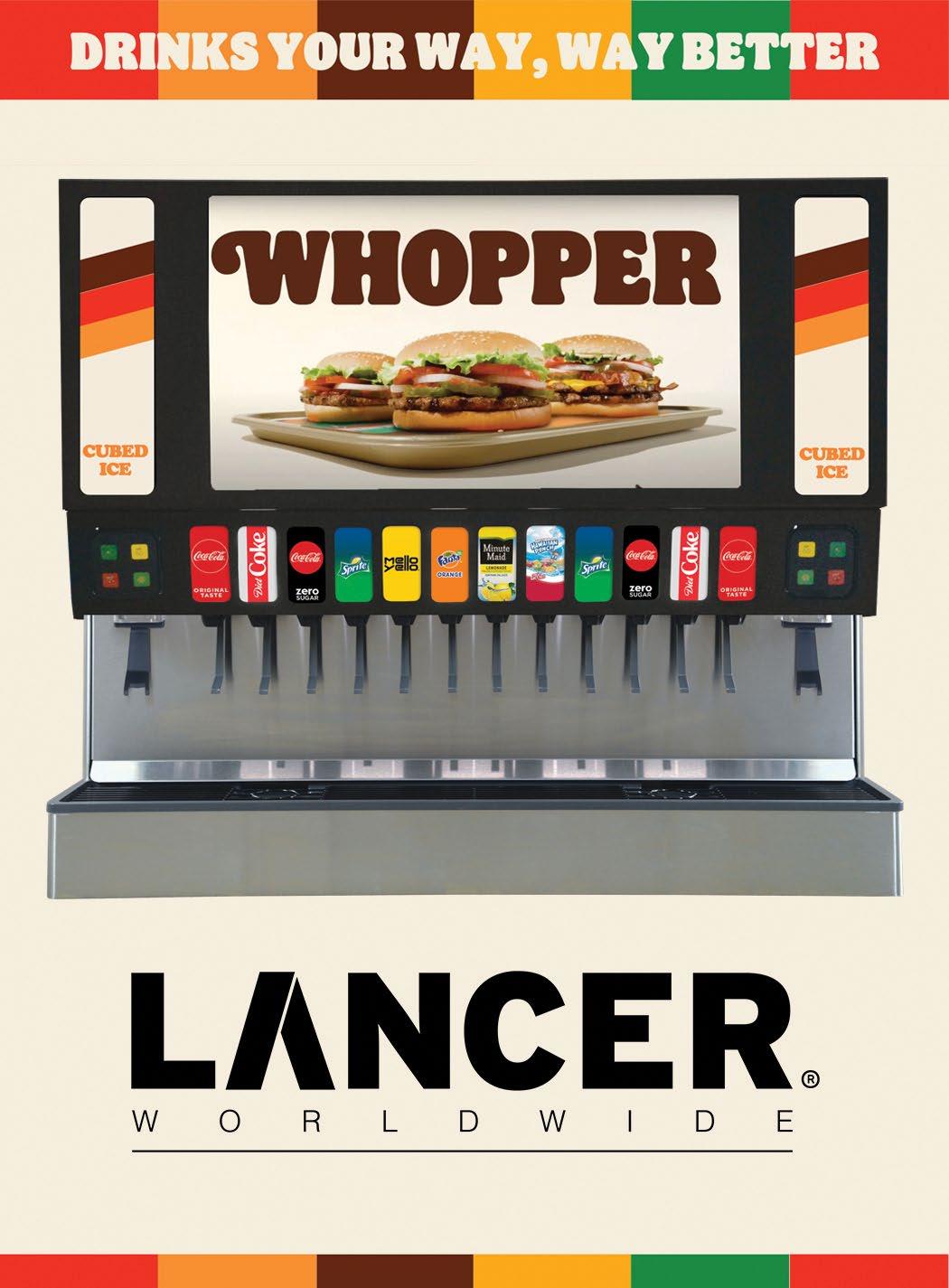




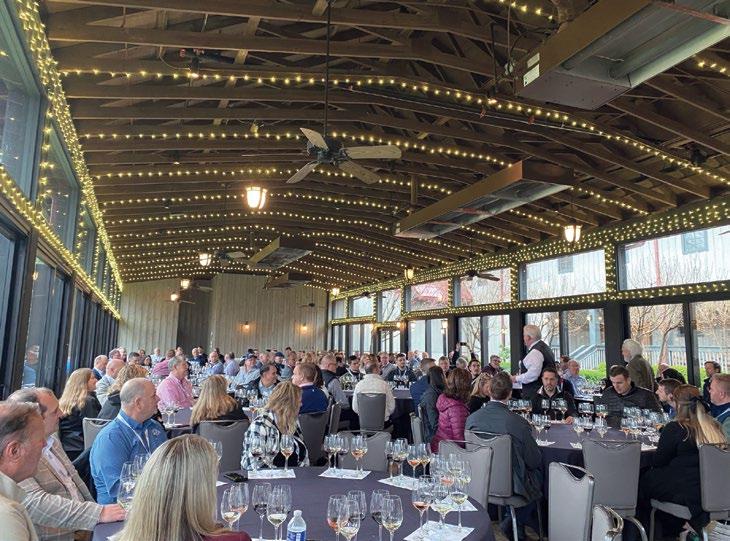
The joint meeting brought National Franchisee Association (NFA) members from each of these regions together to hear brand updates from BURGER KING® Corp., as well as association updates from NFA vendors partners. Blair Image, Budderfly, The Coca-Cola Co., DtiQ, Expo, Keurig Dr Pepper, PAR and Workstream were invited to speak and present their products and services that are valuable to franchisees.
The first day before general session was full of productive exhibit halls, discussion-filled town halls and a lovely welcome dinner.
Franchisees started the March 26 session with updates from various NFA committees, such as the Restaurant Ops Committee, Image Council and Government Relations Committee. The day ended with two powerhouse presentations from NFA Chair Dan Fitzpatrick and RSI CEO Joel Neikirk.
Shortly after the session concluded, attendees were shuttled to the famous Biltmore Estate to enjoy dinner and wine tasting.
The last day of franchisee-only sessions started with a prime cost update from Rich Scanlan after a couple of vendor presentations. Following Luke Andrzejewski’s “24 Hour Operations” presentation, BURGER KING President U.S. and Canada, Tom Curtis, concluded with an update with corporate and lunch with the franchisees.
Joint regional meetings are always a great time for franchisees nationwide to connect and network. Stay tuned for communications regarding regional meetings throughout the rest of 2024! n
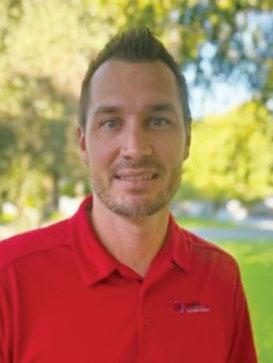
Mike Laird, CEO and president of Laird Management LLC.
Laird Management LLC, one of the largest BURGER KING® franchises in the state of Arizona, hard work and loyalty to one’s community are values that are both treasured and rewarded within its stores. Being a local family-owned company that operates 28 BK® restaurants nationwide, Laird Management ensures that its team members are committed to providing excellence in customer service and satisfaction, as well as giving back to the communities closest to the heart of the Laird family. Founder and former National Franchisee Association (NFA) Chairman, Mitchell C. Laird, has 40 years of experience as a practicing attorney and 20 years as a BK franchisee under his belt. His son, Mike Laird, became owner of Laird Management in 2015 and has been committed to keeping the company’s vision of service excellence intact.
As a veteran of the United States Army who served two combat tours in Iraq, Laird’s leadership style is rooted in values he learned throughout his service. A coin-based rewards system Laird learned from his time in the military is utilized in Laird Management restaurants across the country to recognize team members for their various achievements in customer service. There are three distinct styles of coins — one that is distributed by general managers to their teams, one that is distributed by above restaurant leaders, and one that is distributed by the office support and admin team.
These coins can be used to recognize employees for showing exemplary service to customers, consistently being on time for shifts or for any other instances of personal and/or professional success.
“We utilize the system in our company to give our team members public recognition,” Laird said about the importance of the coins. “We make a great effort to carry out those coin exchanges publicly so that they can really be congratulatory moments.” Once they’ve collected numerous coins, team members are typically able to redeem them for various prizes, including branded BURGER KING or Laird Management paraphernalia, movie tickets and even a cash bonus.
Laird has also maintained relationships between his company and various Veteran organizations through fundraising efforts geared toward helping Veterans in need. The Veterans of Foreign Wars (VFW) has partnered with BURGER KING franchise restaurants for almost two decades to orchestrate an annual fundraiser throughout the month of May to raise funds in support of the VFW’s Unmet Needs program. Laird Management's restaurants are included in the many BK locations across the nation that encourage guests to donate $1 or round up their purchase to help support
grants to military and veteran families facing financial crises due to their military service. The proceeds go directly to assisting these families with various basic life necessities like rent, mortgage and utility payments, vehicle repair, medical expenses and food. Since 2007, BURGER KING franchisees have raised more than $7 million in support of the Unmet Needs program. This year, Laird Management stores are prepared to participate and continue to showcase their commitment to servicing both the Veteran community and the BK community at large. n

Laird Management awards coins to team members as a symbol of recognition and empowerment, as well as to recognize their various efforts and achievements.
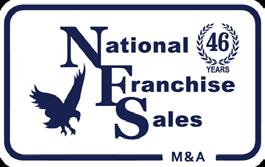
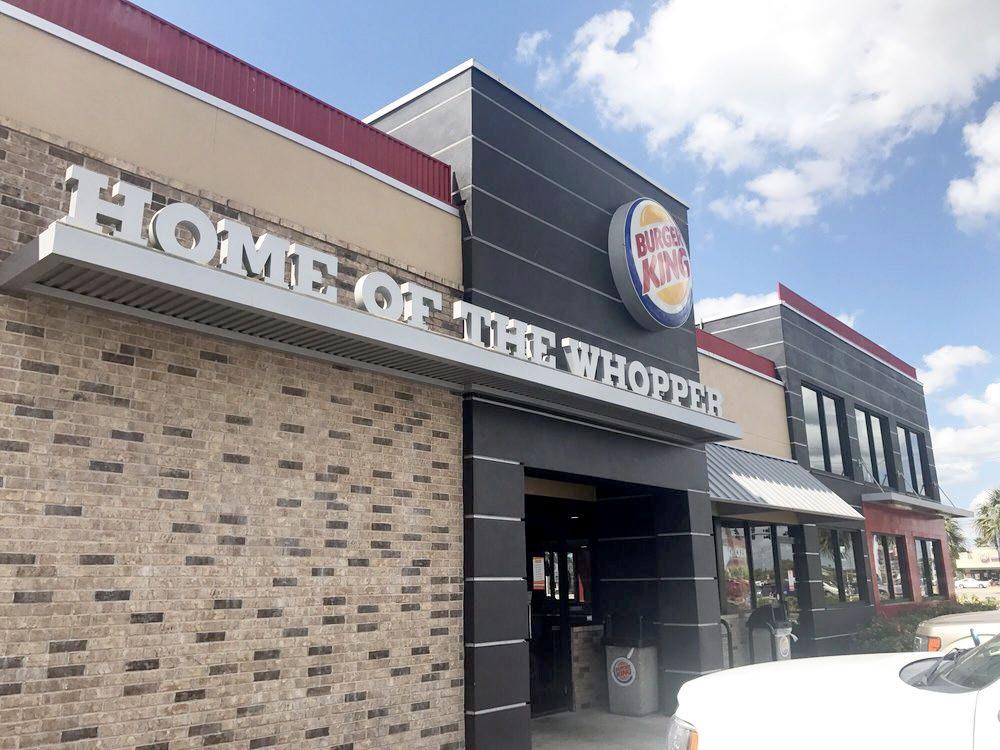
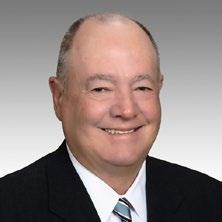



Elevanta Health
Green Dot Corp./rapid!
Hall Financial Advisors
Lockton Affinity
Mize Restaurant Group, providing Elevanta Payroll & Accounting Services
Keurig Dr Pepper
The Coca-Cola Co.
PARTech
Lancer Worldwide
Restaurant Technologies Inc.
The Hershey Co.
Xenial
Allen Industries
BlueTriton Brands
Comcast Business
Ecolab
Gycor International
Restaurant365
Simplot
Tyson Foods
Upside
UPShow
Partner
Caroline McShane memberservices@elevanta.com 678-797-5160
Partner Paul MacDonald pmacdonald@rapidpaycard.com 626-765-2890
Partner Kevin Knab kknab@hallfa.com 866-865-4442
Partner Reid Robson elevanta@locktonaffinity.com 844-403-4947
Partner Stacy Higgins shiggins@mizecpas.com 785-233-0536 X: 3103
Diamond Josh Hanley josh.hanley@kdrp.com 770-789-8266
Ruby Susan Miller skmiller@coca-cola.com 404-852-5399
Ruby Chad Casel chad_casel@partech.com 619-333-5060 X: 8273
Sapphire Greg Edwards greg.edwards@lancerworldwide.com 904-631-1031
Sapphire Ileana Barbara ibarbara@rti-inc.com 954-612-8086
Sapphire Steve Byrnes scbyrnes@hersheys.com 704-604-8745
Sapphire Nina Monsour events@xenial.com 313-550-2533
Pearl Betsy Swan betsy.swan@allenindustries.com 336-615-8791
Pearl Anitra Miller anitra.miller@bluetriton.com 321-863-0944
Pearl Dan Smith daniel_smith2@comcast.com 215-439-2524
Pearl Al Powell al.powell@ecolab.com 816-206-2513
Pearl David Rogers drogers@gycorfilters.com 800-772-0660
Pearl Lisa Rodkey lrodkey@restaurant365.com 717-269-0192
Pearl Brad Glover brad.glover@simplot.com 704-907-6522
Pearl Kathy Black kathy.black@tyson.com 410-340-3974
Pearl Ryan Gaylor ryan.gaylor@upside.com
Pearl Laura Lieder laura@upshow.tv 517-449-0876
Welbilt Pearl Scott Baillargeon scott.baillargeon@welbilt.com 318-218-2775
Amazon Assoc. Mbr. Isaac Helu aisake@amazon.com 707-590-4158
Archmill House Assoc. Mbr. Mike Donnelly mike.donnelly@archmillhouse.com 905-648-7330
Avery Dennison Assoc. Mbr. Darrin Briggs darrin.briggs@averydennison.com 435-421-2676
BILL Assoc. Mbr. Carli Smyth carli.smyth@hq.bill.com 801-922-0962
Bimbo Bakeries Assoc. Mbr. Steven Poole steven.poole@gruopbimbo.com 678-918-6035
Budderfly Assoc. Mbr. Craig Norris craig.norris@budderfly.com 214-549-6936
Casablanca Design Group Assoc. Mbr. John Harrison john.harrison@casablancadesign.com 770-337-0931
Century Products LLC Assoc. Mbr. Alvis Alston aaa@centuryproductsllc.com 336-362-7393
Chatter by Stingray Assoc. Mbr. William Folsom wfolsom@stingray.com 386-208-9109
Cooper-Atkins Assoc. Mbr. James Kirk james.kirk@copeland.com 208-553-5425
C Squared Advisors LLC
Assoc. Mbr. Peter DeFilippo pete@c2advisorygroup.com 401-525-6771
Current Lighting Assoc. Mbr. Dawn Kack dawn.kack@currentlighting.com 864-704-9987
DMI Manufacturing Inc. Assoc. Mbr. Denise Bangasser denise@dmiparts.com 440-975-8645 X: 138
DTiQ Assoc. Mbr. Doug Smith dsmith@dtiq.com 305-988-1020
Duke Manufacturing Assoc. Mbr. Toni McFeders tmcfeders@dukemfg.com 314-231-1130
Dynaxe Workforce Assoc. Mbr. Matthew O’Brien matt.obrien@dynaxecapital.com 813-842-6037
Eastern Bank Assoc. Mbr. Sean Perkins s.perkins@easternbank.com 203-350-9759
eb3.work Assoc. Mbr. John Dorer johnd@eb3.work 866-337-1403
Ecotrak LLC
Assoc. Mbr. Matt Singer msinger@ecotrak.com 888-219-0000 X:2 Energybox Assoc. Mbr. Tony Carrella tony.carrella@energybox.com 973-500-2700
Entera Branding Assoc. Mbr. Matt Czajkowski matt@enterabranding.com 850-691-9652
Factura.ai Assoc. Mbr. Bradley Bloch bradley@factura.ai 647-231-3606
FCC Commercial Furniture Assoc. Mbr. Russ Cooley russ.cooley@fccfurn.com 541-580-3192
FranBizNetwork Assoc. Mbr. Carter Asefi carter@franbiznetwork.com 925-391-2724
Franke Foodservice Systems Assoc. Mbr. Wally Kisling wally.kisling@franke.com 615-751-7594
Frozen Beverage Dispensers (FBD) Assoc. Mbr. Joe Clements jclements@fbdfrozen.com 214-232-9555
Hermitage National Accounts Assoc. Mbr. Wyatt Culver wculver@gohermitage.com 615-714-6862
HME Assoc. Mbr. Stephen Lee slee@hme.com 864-508-1105
Horne Assoc. Mbr. Austin Hall austin.hall@horne.com 251-405-2964


IndoorMedia Inc.
Assoc. Mbr. Kris Olson kristine.olson@rtui.com 920-621-4082
JLL Assoc. Mbr. Lynn Arno lynn.arno@jll.com 916-997-7798
KG4 Proficient Solutions Assoc. Mbr. Kelton Graham Kelton.graham@gmail.com 561-236-8123
Mahoney Environmental Services Assoc. Mbr. James Fisher info@mahoneyes.com 800-892-9392
Markon Assoc. Mbr. Brian Jameson brianj@markon.com 831-775-1481
Marlite Assoc. Mbr. Anita Craig acraig@marlite.com 333-260-7621
Marmon Foodservice Technologies Assoc. Mbr. Mike Kraus mike.kraus@marmonfoodservice.com 720-745-2354
Middleby Assoc. Mbr. Rajiv Agarwala rajiv.agarwala@taylor-company.com 303-815-9914
National Franchise Sales Assoc. Mbr. Mike Deegan md@nationalfranchisesales.com 949-428-0492
NCA Consultants Assoc. Mbr. Chris Witts cwitts@ncaconsultants.com 727-415-3372
One More Time Inc. Assoc. Mbr. Alex Alvarez aalvarez@onemoretimeinc.com 323-839-8541
OSCAR Assoc. Mbr. Quratul-Ann Malik q@oscar.ai 301-742-0967
Otter Assoc. Mbr. Stefano Caccia stefano.caccia@tryotter.com 415-290-2525
OwlOps Assoc. Mbr. Doug Rixmann doug.rixmann@owlops.com 800-677-4860 X: 111
Panasonic Connect North America Assoc. Mbr. Theresa Murphy theresa.murphy@us.panasonic.com 201-492-0925
Parapet Studios Assoc. Mbr. Jeff North jeff@parapetstudios.com 503-560-2173
Parts Town Assoc. Mbr. Josh Artman jartman@partstown.com 630-514-2029
Proliant Assoc. Mbr. Clay Larkin mike.kraus@marmonfoodservice.com 720-745-2354
Red Bull Assoc. Mbr. Charles Dixon charles.dixon@redbull.com 772-215-4518
Seating Concepts Assoc. Mbr. Zach DePyssler zdepyssler@scicustom.com 815-483-2244 Skechers Assoc. Mbr. Harold Surabian harold.su@skechers.com 805-512-7463
Spray Master Technologies Assoc. Mbr. Barry Healey bhealey@spraymastertech.com 479-366-4471
Tillster Assoc. Mbr. Ian Grant II igrant@tillster.com 305-803-8775
Tucker Safety Assoc. Mbr. Jason Hayes jhayes@tuckersafety.com 901-387-6139
TundraFMP Assoc. Mbr. Thomas L. Martin tmartin@tundrafmp.com 704-962-0751
Vericast Assoc. Mbr. Amy Sanders amy.sanders@vericast.com 954-805-3563
Veterans of Foreign Wars Foundation Assoc. Mbr. Benjamin Vargas bvargas@vfw.org 816-968-2720
Workstream Assoc. Mbr. Sarah Barker sarahbarker@workstream.is 801-831-4638

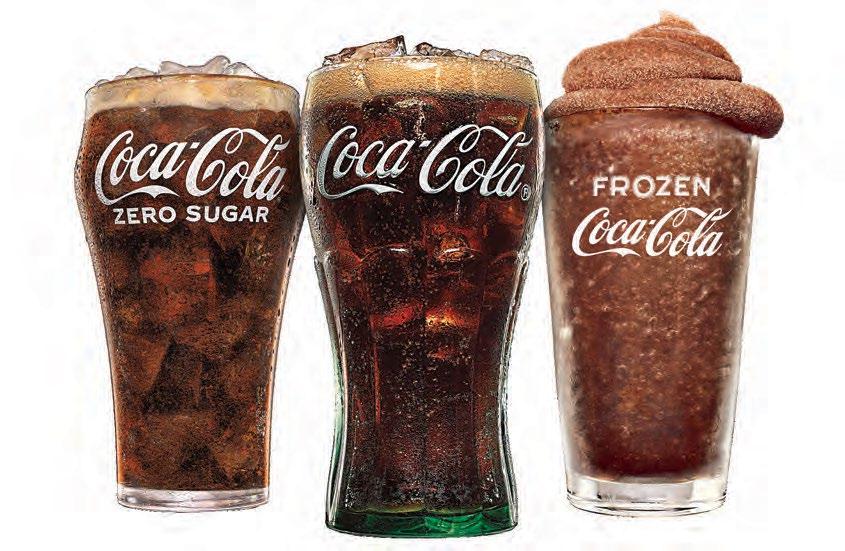
Company Name: MHF & N&R Dining
Partner(s): John Naparlo, Courtney Hurtubise, Chandra Ozkan (My children)
Year You Became a BK® Franchisee: 1980
Number of Restaurants: 30, then sold and built 22 more. Four Drive-Thru only stores.
State(s) Your Restaurants Operate In: Virginia & North Carolina
How did you become a BK® franchisee?
I started working at BK in 1967 as an hourly employee in Wilkes-Barre, Pennsylvania. I worked for the late Mr. Edmund P. Davis (PDM Co.).
Both of my parents passed away before I was out of high school, so I came from a really poor family. I was working on a farm and shining shoes in the local bars on the weekends. BURGER KING® opened, and I applied and was hired. I went from making $0.35 an hour to $1.25 an hour.
While still in high school, I became a lead manager. After high school, I was promoted to assistant manager of a new store. After that, I became the manager of another new store. As the company grew, I grew. I then became director of operations and continued to help grow the company.
After working for the PDM family business for about 12 years, I decided I would like to become a BK franchisee, but I didn’t have any money. I put an ad in the paper that read: “Honest, hard-working person looking for a financial partner to open a fast-food franchise.”
If you have business partners, how did you meet?
When you don’t have anything, you don’t realize how many people there are that are willing to invest. After putting an ad in the paper for a financial partner, I came home one day and must have had 50 letters from people wanting to invest. Some wanted to open a Dunkin Donuts, another wanted to open a Wendy’s, and someone wanted to open an Italian restaurant.
Offers ran from 10% to 25%. Mr. Gene Chismer, who became my partner, offered me 50%, which is unheard of.
Tell us a little about yourself and the company’s background.
We opened our first restaurant in 1980, and by 1994, we had 30 BURGER KINGs all built from the ground up. Talk



about working around the clock. We had to find and negotiate the sites. We had to hire a civil engineer and an architect for each site. We then had to get everything approved by BK and the local Municipalities. Then we had to put it out to bid and finalize a deal with the contractors. While all this was going on, you were saying your prayers every night that the store would do enough business to pay the bills.
We opened our first restaurant in 1980, and by 1994, we had 30 BURGER KINGs all built from the ground up.
In 1994, my partner Gene Chismer passed away, and his wife wanted to sell her shares. My children bought her shares, and now I am a partner with my children. In 1996, I sold most of our BK’s. I always kept a few just to stay in the system.
The guys I sold out to went bankrupt in less than five years. I bought them back for 12 cents on the dollar and turned them around and sold them again.
As I mentioned before, I never got out completely. My son came home from college and was playing in a country band traveling up and down the East Coast and said he was hungry. I said the only thing I know is BURGER KING. We had about five restaurants when he started, we now have 22 restaurants, and four of them are Drive-Thru only. We also have five restaurants that were closed BK’s that we reopened, and all are making over $1.8 million in sales.
In your opinion, what stands out about the BURGER KING brand?
The best thing about BK is still the flame broiler. Nothing can beat the WHOPPER if it is cooked and prepared right.
Going forward, what are your top three business goals for your company?
Our main goal these days is to keep the restaurants staffed.
What is the best piece of business advice you have received?
The best advice I received is: “You are not in the Burger Business; you are in the People Business.” Once you learn how to manage people, you can manage anything.
What do you feel is the biggest challenge currently facing franchisees?
The biggest challenge for BK is committing to having a simple menu. There are three chains that are booming: Chick-Fil-A, In-n-Out, and Raising Cane’s. They all have simple menus.

What is the biggest industry change since you started?
The three biggest changes in fast food since I started are the Drive-Thru, delivery and technology, such as ordering on an app.
Tell us about your family.
I have been very blessed. My wife Cathie and I have been married for 50 years and have three children — Chandra, Courtney and John — and nine grandchildren. My wife and I met at BURGER KING, where I was the assistant manager. I had the white hat and assistant manager badge on, and we fell in love. All my children have worked at BK and we are now working through the third generation.
It is great to have family involved with the business. My son John and my son-in-law Dr. Jim Hurtubise are both involved in day-to-day operations, along with many long-time, dedicated employees that have become family. I am still around for free advice and analyzing the figures.
Tell us about your personal interests.
My personal interest was and is my family. My life has been spent with my family. We always did activities together. My son John played D-1 basketball at James Madison University and had a band that traveled up and down the East Coast. My daughter, Courtney, swam at the University of Tennessee. My daughter,
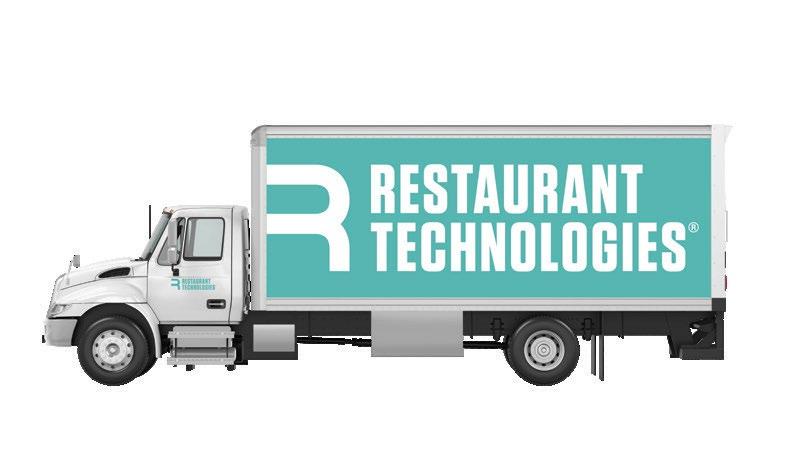







Look, Listen, Read is a quarterly compilation of some of the most highly rated and reviewed apps, podcasts, books, websites and other resources. NFA does not support or endorse the use of these tools, which merely serve as a guide to exploring a new level of knowledge and productivity for your business.
1

In Adventures in Franchise Ownership, author Christy Wilson Delk lays out what successful franchisees do that you won’t find in most owners’ manuals and includes her good, bad and really tough days before her successful exit 15 years later. Franchisees, like most small-business owners, experience times of extreme frustration and lapses in motivation, and often exit before reaching their potential and their goals. This guide explains how her Four Pillar to Pillars Approach helps all franchise owners get to the top tier of their franchise system.
2

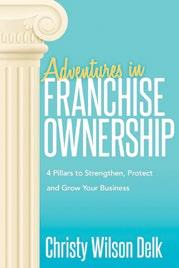
The Franchise Friday podcast’s mission is to help individuals explore self-sufficiency as an alternative career. This podcast helps franchisees define their income, lifestyle, wealth and equity goals and provides education on the best ways to achieve them.


3

In the Franchise Bible, franchise expert Rick Grossmann and franchise attorney Michael J. Katz impart decades of insight and advice on what it takes to make your franchise operation successful. Grossmann and Katz share expert tutorials, tricks of the trade, and access to sample franchise documents, checklists and questionnaires designed to get you organized, support you through the process and get your new franchise off the ground.
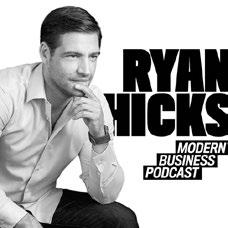
4

Co-hosted by the dynamic duo Ryan Hicks & Zack Fishman, Modern Business is an award-winning, interview-style podcast that spotlights franchising’s brightest executives. Follow along each week as we uncover franchising’s top technology trends, the hottest franchise industries to invest in, ways to improve your own franchise business and how to potentially become a franchisee.
5

Naranga is a comprehensive franchise management software designed to support the operations of franchise businesses. It offers a suite of tools that help franchisors and franchisees manage various aspects of their business efficiently.
6

David Finkel’s and Jeff Hoffman’s, Scale: Seven Proven Principles To Grow Your Business and Get Your Life Back teaches you to escape the self-employment trap by building a business rather than a job. It addresses overcoming obstacles in various business areas such as sales, operations and finance. You’ll learn to manage cash flow, systematize operations to reduce costs and increase capacity and create sustainable growth through efficient systems, empowered teams and intelligent internal controls.
7


Figma is a web-based design tool primarily used for interface design and prototyping. It allows designers to create, collaborate on, and share design projects in real-time. Figma is known for its robust features and capabilities that make it a popular choice among designers and design teams.

9


8 Entrepreneur Weekly, hosted by award-winning broadcast professional, Alan Taylor, equips listeners with the critical information necessary to grow their business through practical advice and thought-provoking interviews.
ServiceTitan contracting software has a variety of products and solutions to choose from, designed to improve operational efficiency, enhance customer satisfaction and loyalty, and reduce costs. ServiceTitan keeps up with customers, employees, projects, payments and your performance.

10

Social Geek Radio is a podcast hosted by the Franchise News Podcast. The show covers a variety of topics related to franchise growth and digital marketing. The show has a lot of interesting guests and offers useful information, and is a great way to stay on top of business trends. n

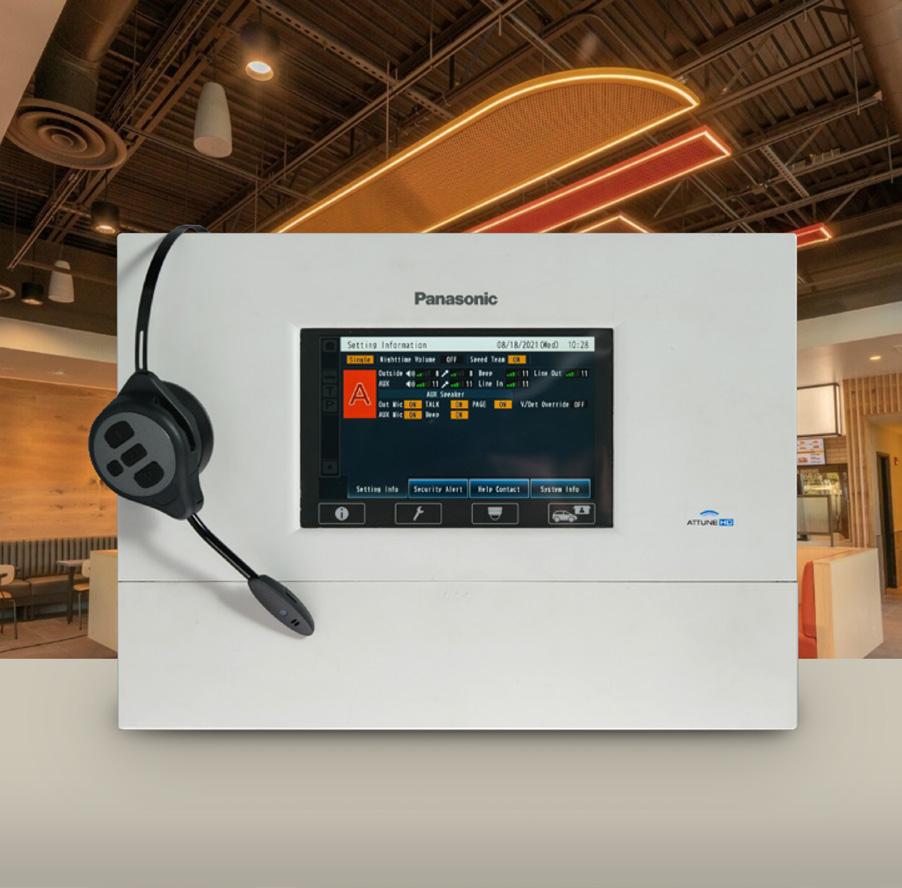



1
With smartphones giving consumers access to the world at their fingertips, how business owners present their digital brand is more important than ever. After all, 89% of people search for local businesses on their smartphones weekly.
2
In the digital marketing space, search engine optimization (SEO) matters. The top three ad spots on search engine results pages attract 40% of all clicks on the results page.
3
While the normal assumption is that ads are a nuisance to the consumer, the statistics say otherwise. Seventy-five percent of people say paid ads make it easier to find what they need.
4
For the restaurant industry, search optimization is a pivotal way to increase business. “Restaurants near me” is by far the most popular “near me” search with 6.2 million searches per month.
5
In the digital marketing space, email marketing is not outdated whatsoever. Twenty-one percent of promotional emails are opened within the first hour.
6
The most popular marketing channel in the U.S. is social media, with 55% of businesses in the United States optimizing it.
7
Social media marketing can prove to have fruitful results. Seventy-one percent of consumers are more likely to recommend a brand after having a positive social media experience.
8
Half of consumers are likely to unfollow a social media page due to low-quality products or poor customer service.
9
The more ways you can engage your audience, the better. Businesses using three or more channels in a campaign have an engagement rate 250% higher than those using single-channel campaigns.
10 Technology can be implemented into your business to streamline your marketing. Of those that have utilized marketing automation software, 63% saw positive results within six months.
Sources: Ambassador, BrightLocal, Entrepreneur, Fast Company, GetResponse, Hyperlocology, Marketing.com, Restaurant Dive, Thrive Internet Marketing Agency, WordStream


Q

What skills or perspectives from your background do you apply as a public official?
A I may be a doctor by practice, but I gained business experience by owning and operating a hospital in Great Bend, Kansas. I will always fight for fiscal responsibility and use the same principles I used to run my hospital when considering bills and voting on packages.
Q What do you see as the current biggest threat to small-business owners?
A Without a doubt, it’s burdensome regulations. Just take the latest joint-employer rule as an example. The vague language as to what constitutes “indirect control” provides a litany of uncertainty for franchises everywhere and threatens the freedom that franchisees have in running their business. Regulations in 2022 put $3 trillion worth of costs onto the economy. It’s unsustainable to continue this path, which is why I have fought tooth and nail against the rulemaking coming out of this administration.
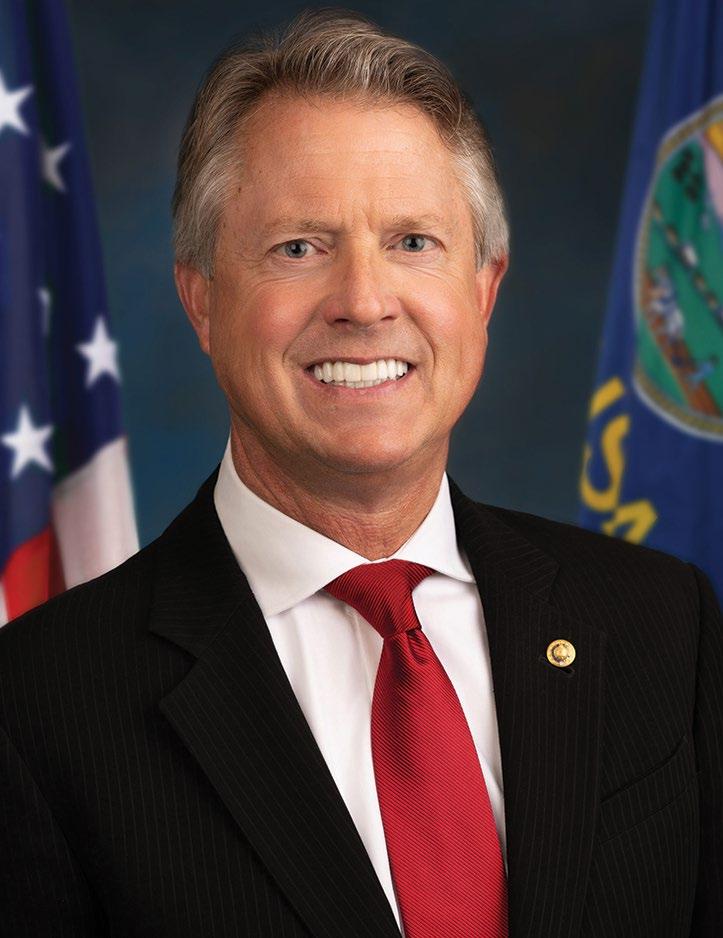
A Feedback directly from Kansans is essential for our work here in D.C. My staff and I make an effort to host roundtables across Kansas with small-business owners, financiers and Small Business Administration (SBA) officials to make connections for small-business assistance, but also for our team to hear what’s happening on the ground.
Q What seat do you believe franchisees have at the table and what do you do to support them?
AQ What challenges have you helped small businesses in your state overcome?
A Aside from fighting overregulation, I’ve fought to keep taxes low for businesses. The Tax Cuts and Jobs Act led to the most prosperous economy of my lifetime, and I will fight to continue the successful breaks and cuts as we look to pass a tax package next year. The more the federal government can keep money in the pockets of small businesses, the better off our communities and the economy will be.
Q
In what ways are you seeking feedback from small businesses in your state and using that information in Washington, D.C.?
Franchisees should absolutely help steer the conversation. The franchise business model operates in so many different areas that policy affects, and we have championed measures in the Senate that provide a friendly environment for franchisees. Case in point, our bill, the Save Local Business Act, would solve the joint employer issue we see today by codifying a narrow standard of “direct control” to establish a joint-employer relationship only if a parent company works on day-to-day functions such as hiring, firing, payroll, shift scheduling and other important aspects of managing a business. Franchisees should have the freedom to run their businesses how they see fit and establishing a narrow joint-employer standard helps preserve that freedom.
Q What message do you have for small-business owners struggling with supply chain issues, inflation, staffing and other prevalent issues of today’s day and age?
A
We hear you and we are fighting for you, but we need someone in the White House who understands this pain, who has run a business and signed employees’ checks. We need someone who fights against rampant inflation and sky-high interest rates. Attitude is a reflection of leadership; right now we are going in the wrong direction and Americans are feeling it. n


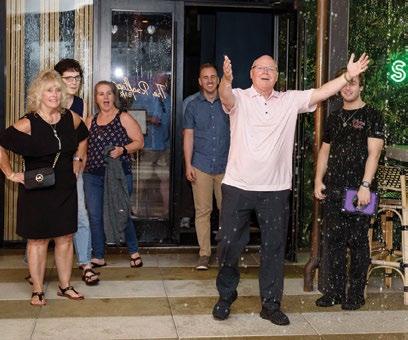
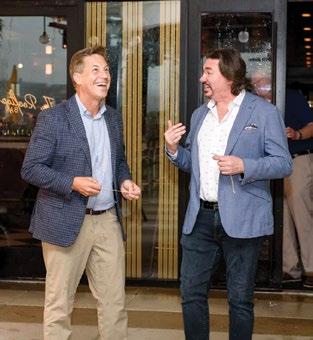
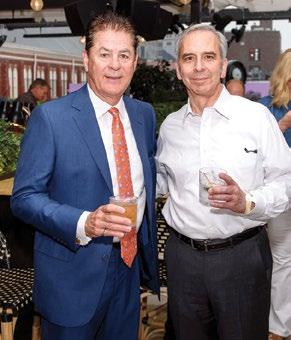

In early June, close to 500 members of the BURGER KING® and National Franchisee Association (NFA) family, including NFA members, above restaurant leaders, vendor suppliers and representatives from corporate, met at the Grand Hyatt in Nashville, Tennessee, for the 2024 NFA LEAD Conference. The four-day event kicked off with a Welcome Dinner on June 3, at the Twelve-Thirty Club, and even with the torrential downpour, the rooftop event was a great way to start the conference.
Tuesday, June 4, began with a franchisee-only meeting where NFA Chair Dan Fitzpatrick reviewed the Franchise Business Review Survey results. Following the review, general session opened to all attendees. NFA LEAD Conference Committee Chair Kevin Newell opened the day with a welcome presentation, followed by Dan Fitzpatrick and RBI Executive Chairman Patrick Doyle’s Flame-Broiled Insights: A BURGER KING Fireside Chat. Following the fireside chat, NFA LEAD Conference Committee Member Keith Egyed and Kevin Newell took the stage to discuss the importance of LEAD and how to gain insights and benefits from attending the conference. The second day of the event closed with an Opening Reception in the exhibit hall where franchisees and above restaurant leaders were able to participate in the inaugural Vendor Passport Experience. Each attendee was given a vendor passport at the registration desk and was encouraged to visit all the booths of participating vendors. Once all stamps were collected, attendees could enter their passports in a raffle for the chance to win big at the end of the conference.
The third day of the conference began bright and early with a networking breakfast in the exhibit hall followed by a full morning of educational workshops titled LEADing at Your Best: Create World-Class Employees, presented by Heidrick & Struggles, a premier provider of executive search, corporate culture and leadership consulting services. John McKay and Teresa Garza with Heidrick & Struggles kept attendees engaged and energized through
interactive workshops and educational lectures. Following the morning session, attendees were invited to break for lunch in the exhibit hall and visit partners and vendor suppliers at their booths.
After lunch, general session resumed with an insightful presentation by keynote speaker Laura Stack with The Productivity Pro®, who discussed Attack of the Productivity Suckers and how to stay productive with numerous distractions. After Laura Stack’s presentation, Kevin Newell returned to the stage to close out the conference and invite everyone to the closing cocktails. Conference attendees were invited to enjoy cocktails and passed hors d’oeuvres and the Flame Hall of Fame winners were announced during the closing cocktails event. Congratulations to the following Flame Hall of Fame winners: Alex Mendez, Ana Shaw, Aurora Padilla, Genevieve Dolfin, Jasmine Zelaya, Jay Nolan, LaKisha Johnson, Larry Watkins, Lois Anderson-Koster, Mike Sanders and Purvis Anderson.
The final day of the 2024 NFA LEAD Conference started with a breakfast and a welcome and introduction to the day’s general session from NFA LEAD Conference Committee Member Russ Lo Bello. The day’s session was filled with vendor presentations from partners of NFA, including UPshow, PAR, Restaurant365 and Otter. Thank you to our vendors for partnering with NFA! BKC representatives Chakri Somisetti and Ana Silva presented a BKC digital update and franchisee Keith Egyed along with Tom Cheek with Xenial took the stage to speak on back-office solutions. Joel Neikirk, CEO of RSI was the last speaker of the day and provided an RSI update. To close out the 2024 NFA LEAD Conference, Kevin Newell and NFA LEAD Conference Committee Member Bob Reid took to the stage to announce the winners of the inaugural Vendor Passport Experience. Congratulations to Tamara Kiper, Tammy Clymore and Johnny Parker for winning the passport raffle!
Thank you to everyone who joined NFA in Nashville for making this year’s event an unforgettable one! We look forward to the 2025 NFA LEAD Conference. Stay tuned for more details. n
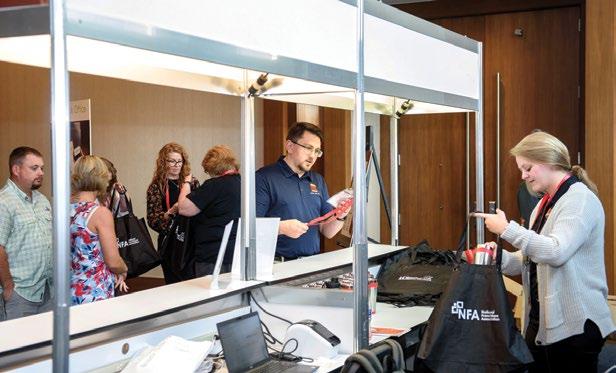
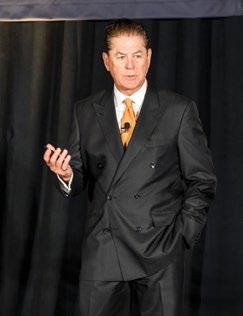
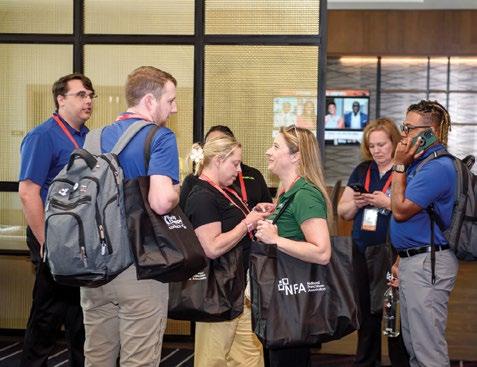
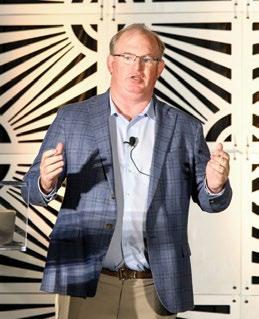
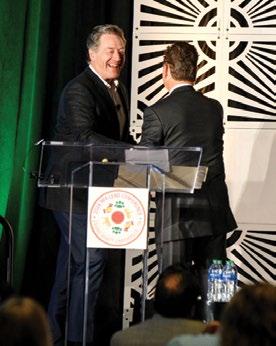
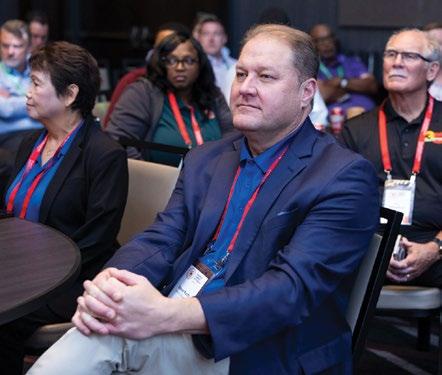
NFA LEAD Conference attendees listen carefully to the BURGER KING fireside
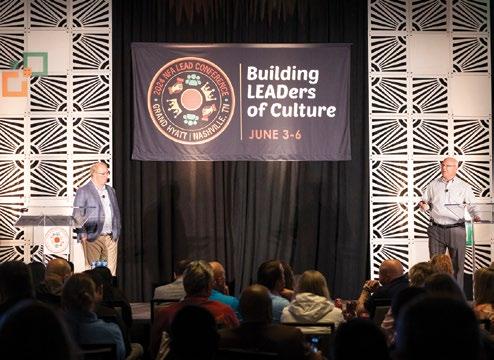
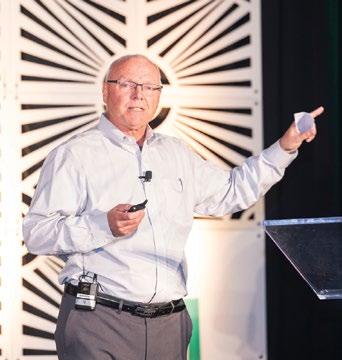
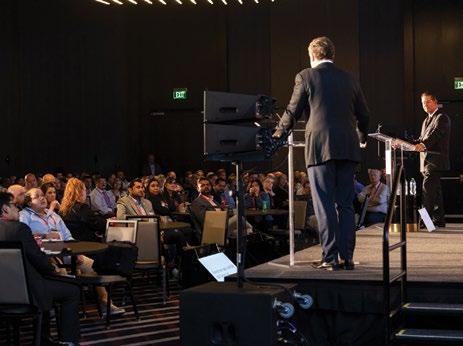
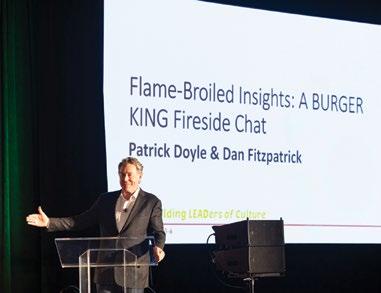
start to the 2024 NFA LEAD Conference.
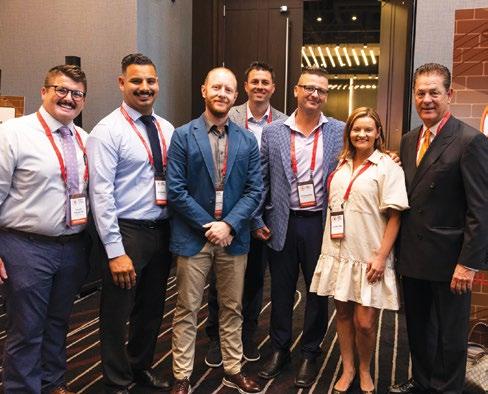

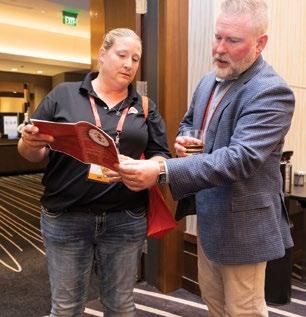
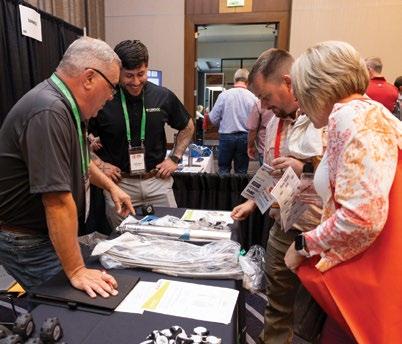

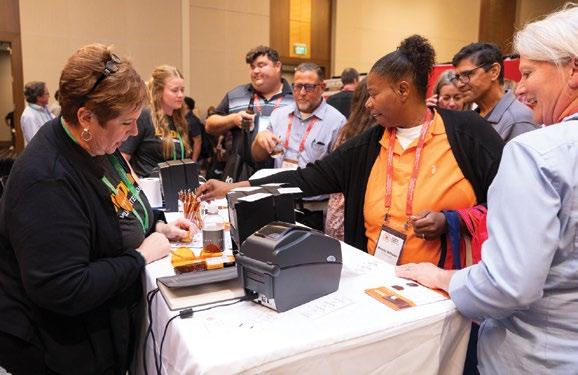
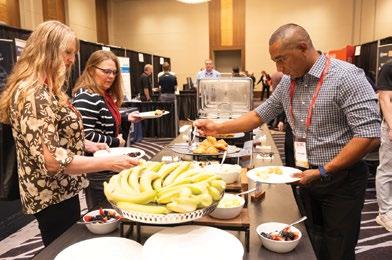
NFA LEAD Conference attendees grab breakfast before starting day two of the conference.
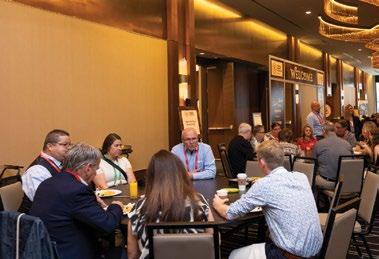
Conference attendees enjoy breakfast at the trade show on June 5, before a full day of insightful content and fun activities.
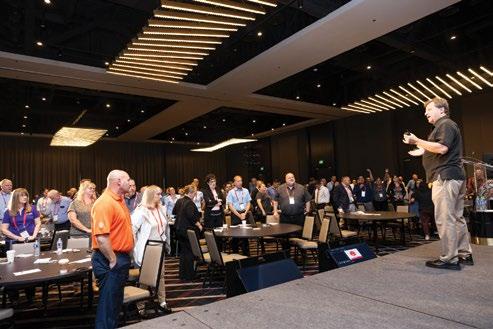
John McKay with Heidrick & Struggle takes the stage to conduct a morning workshop with franchisees and their above restaurant leaders.
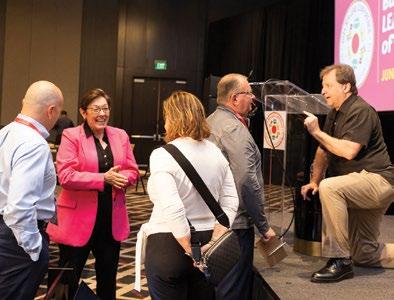
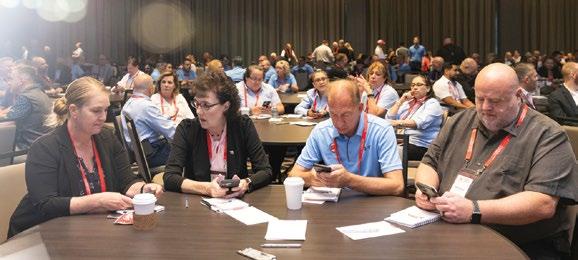

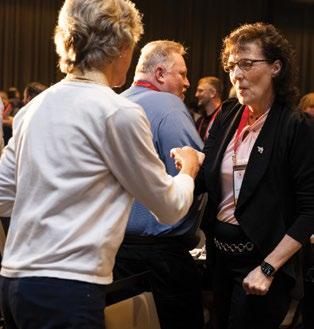
NFA LEAD Conference attendees enjoy themselves during a team building exercise.

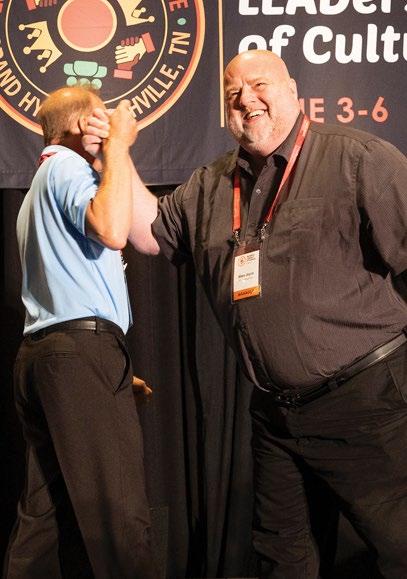
Two attendees take the stage to show the audience how they handled Heidrick & Struggles’ team-building exercise.
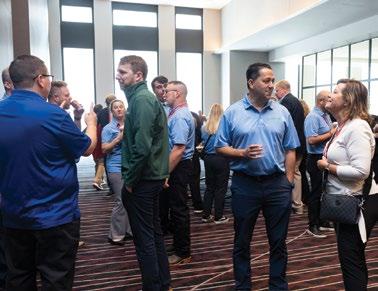
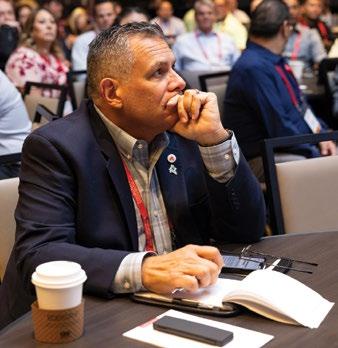
An NFA LEAD Conference attendee takes notes during the morning workshop.
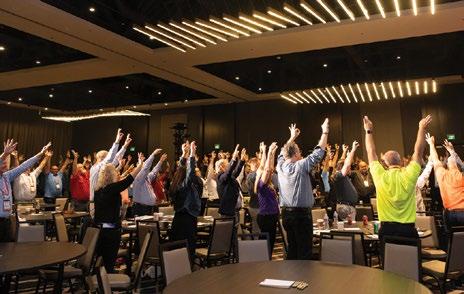
Conference attendees engage in the morning workshop during interactive sessions.
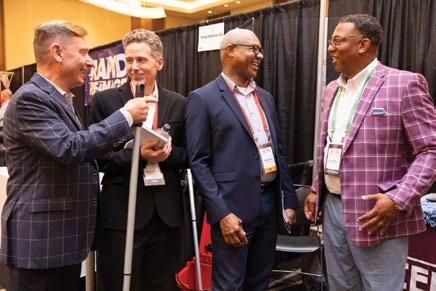
Franchisees and vendor partners enjoy themselves during lunch in the trade show.
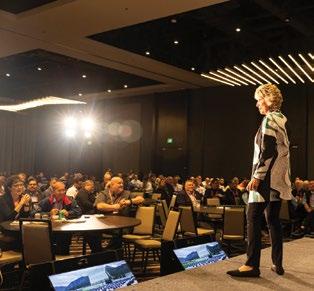
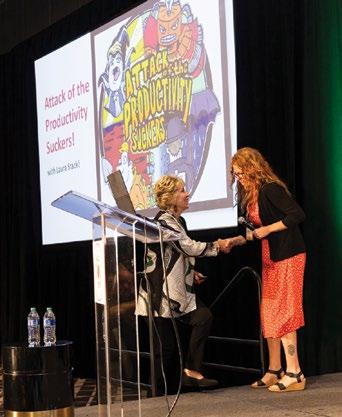



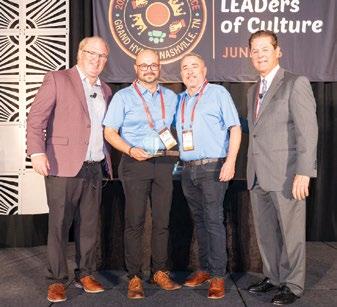
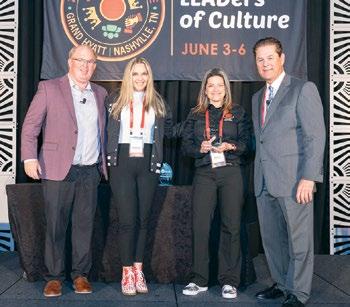
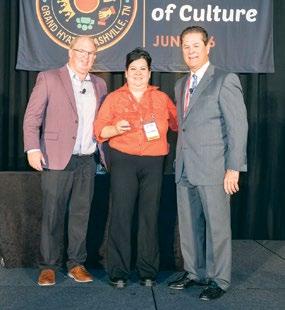
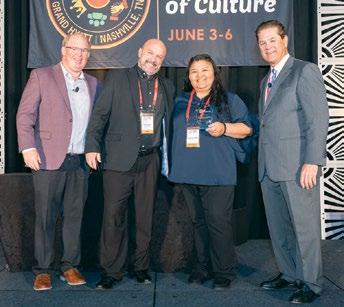
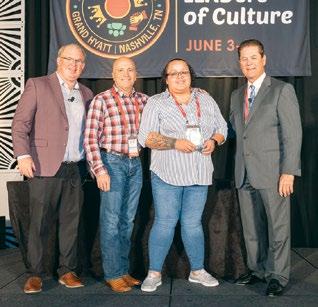
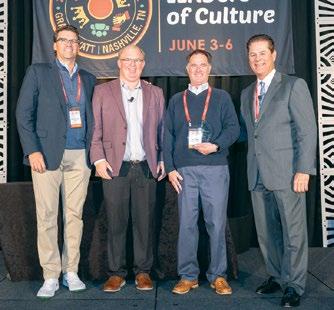

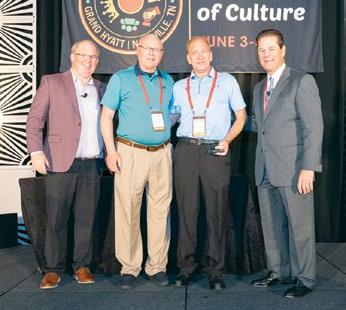
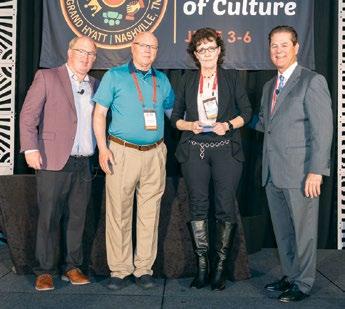
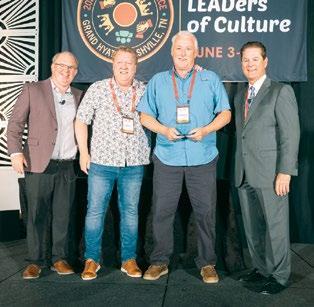

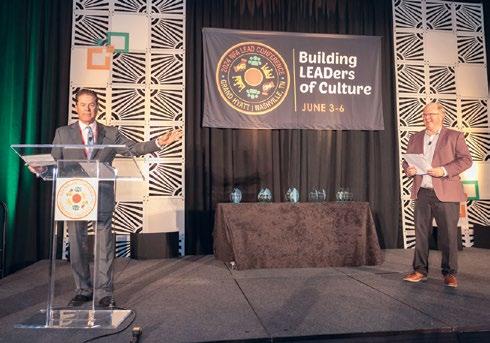

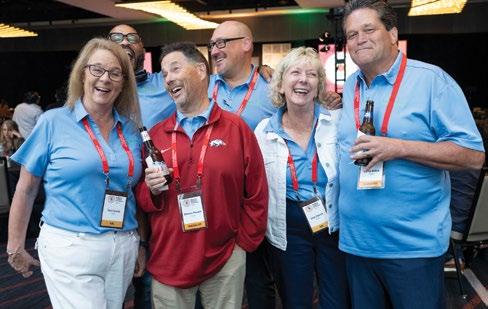



Member, Russ Lo Bello, opens general session on June 6.
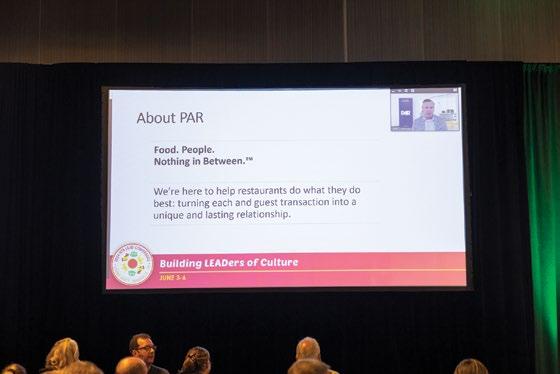
PAR presents its 15-minute presentation via Zoom. Thank you for your support of NFA!
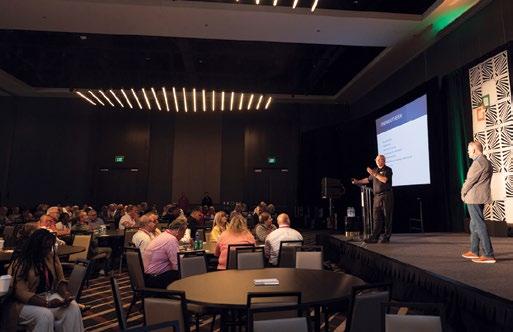
NFA member Keith Egyed and Tom Cheek with Xenial present on back-office solutions during the last day of the 2024 NFA LEAD Conference.
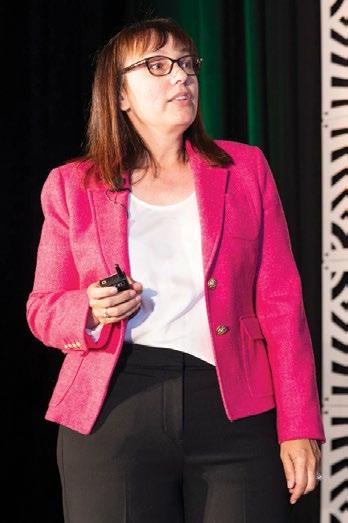
A representative from Otter presents her 15-minute presentation. Thank you for your support of NFA!

Representatives from Restaurant365 present their 15-minute presentation. Thank you for your support of NFA!

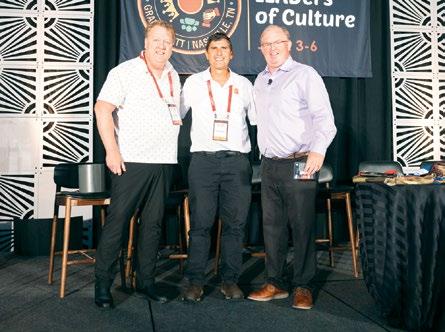



Representatives from UPshow present their 15-minute presentation. Thank you for your support of NFA!
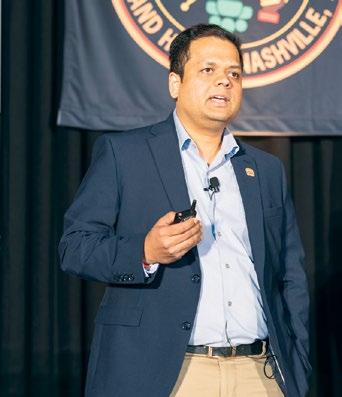
Chakri Somisetti with BKC presents a Digital Update during the last day of the 2024 NFA LEAD Conference.
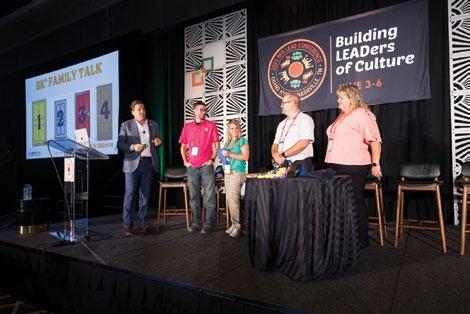
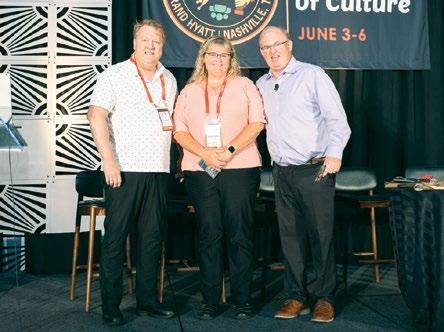
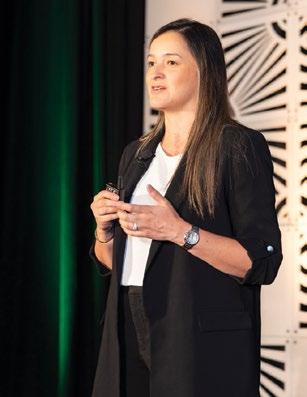
Ana Silva with BKC presents a Digital Update during the last day of the 2024 NFA LEAD Conference.
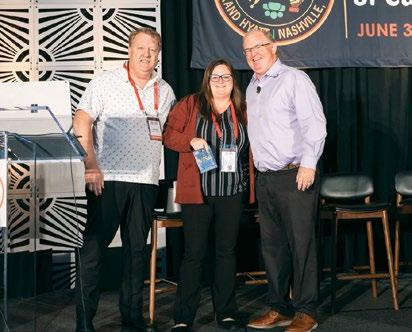
Thank you to our sponsors!

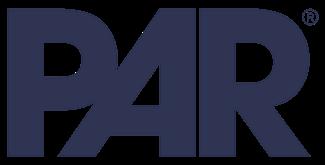
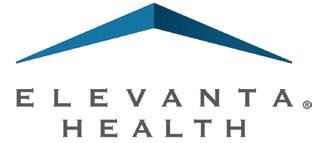
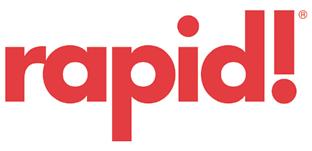

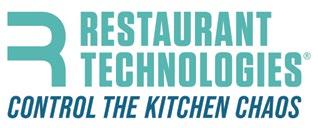
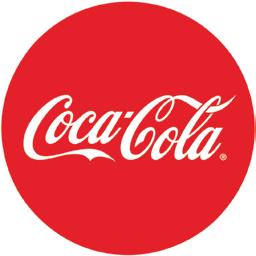
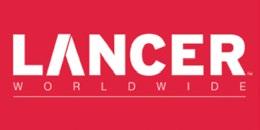

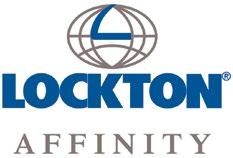


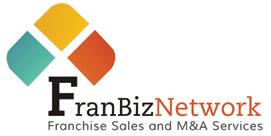

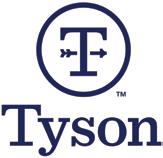







BURGER KING® franchisees are always looking for ways to stand out in a crowded market. The competition among quick-service restaurants is fierce, and franchisees must use creative and effective marketing strategies to attract and retain customers.
One of the key ways that BK® franchisees can market their businesses is through social media. Platforms like Facebook, Instagram, Twitter/X and TikTok provide franchisees with an opportunity to showcase their food and engage with customers in a meaningful way. Engaging with followers through comments, messages and interactive polls helps build a sense of community and loyalty around the brand. By regularly posting high-quality images of their dishes and sharing information about promotions and events, franchisees can build a loyal following and generate buzz around their restaurants.
Social media also offers franchisees the ability to target specific demographics, as well as run ads to reach potential customers who may not have heard of their locations. Consistency on social media is essential to keep customers engaged and informed about the restaurant's promotions, events and menu updates.
GPS Hospitality, a top franchisee for brands like BURGER KING, Pizza Hut and Popeyes attributes the company’s marketing success to a mix of digital and local marketing.
“We leverage digital marketing channels very strategically – to promote a variety of news (i.e. new/remodeled restaurants, specific menu items, 24-hour restaurants, etc.),” Reid Neumann, director of marketing for GPS said. “Paid social and local dynamic mobile marketing are two of our more successful and cost-effective digital tactics.”
In addition to social media, franchisees are finding success through community events. By partnering with local businesses and organizations, franchisees can get involved in their communities and build relationships with potential customers. For example, many operators have hosted events like charity fundraisers, school spirit nights and sports team sponsorships. Engaging with attendees through interactive activities or contests creates memorable experiences that leave a lasting impression.
These events can not only help to raise awareness of their restaurants but position them as active and caring members of their communities. By leveraging community events as a marketing platform, franchisees can effectively reach new audiences, drive foot traffic to their locations and cultivate a loyal customer base rooted in their local community.

by JARED JOHNSEN
Using tools like Google AdWords and Facebook Ads can aid franchisees in reaching potential customers who are actively searching for a quick bite who fit a specific demographic profile. This type of advertising can be particularly effective when combined with other marketing strategies, like social media and community events.
Search engine optimization (SEO) emerges as a pivotal force, intricately connecting local visibility, brand coherence and competitive edge. Franchisees can leverage SEO to carve out a distinct presence amidst a crowded market, capturing the attention of prospective patrons scouring the web for their offerings. With each website, strategic keyword deployment and data-driven analysis, franchisees can not only ascend the ranks of search engine results, but also foster a devoted following within their communities.
Loyalty programs can generate brand advocates who will recommend the restaurant to their friends and family. By offering rewards such as discounts, free meals or exclusive promotions to repeat customers, franchisees can incentivize frequent visits and increase customer retention. Additionally, loyalty programs enable businesses to collect valuable customer data, including purchase history and preferences, allowing for personalized marketing campaigns in the future. By engaging with customers through loyalty programs via email, mobile apps or in-store promotions, franchisees can foster a sense of community and brand affinity. Moreover, by highlighting the benefits of loyalty programs through targeted marketing efforts, such as social media campaigns or signage, franchisees can attract new customers while reinforcing
loyalty among existing patrons.
Franchising allows operators to utilize corporate marketing in conjunction with their local marketing efforts to spread brand awareness of their business. BK franchisees approach local marketing by creating a customized marketing plan that caters to their local market(s). Each market is unique and requires a tailored approach to attract and retain customers. One way they approach local marketing is through local media outlets, such as newspapers and radio stations, to promote their business and reach a wider audience.
Keeping up with trends is essential to staying relevant in the QSR industry. Franchisees must also keep up with the latest technology and marketing trends to create innovative and effective marketing strategies.
“I stay updated by reading a few of the restaurant industry publications and traveling into the field, to see what our competitors are running, promoting, etc.,” Neumann said. “I also have found it valuable to talk with franchisees in other parts of the country to understand what they are seeing and tracking in their markets.”
BURGER KING franchisees employ a multifaceted approach to track the efficacy of their marketing campaigns. Utilizing a blend of digital tools and traditional methods, franchisees meticulously monitor customer engagement and conversion rates. Unique coupon codes and customized URLs enable precise tracking of campaign-driven sales, while QR codes facilitate seamless customer interaction tracking.
Franchisees can leverage customer surveys to gauge campaign awareness and effectiveness. By analyzing sales data, social media metrics and email marketing analytics, BK franchisees gain


invaluable insights into campaign performance, enabling them to optimize strategies for maximum impact. Through strategic partnership tracking and continual refinement, franchisees ensure their marketing efforts resonate with their audience, driving growth and customer satisfaction.
BURGER KING franchisees are finding success by using a combination of traditional and digital marketing strategies to promote their businesses. By leveraging social media, community events, targeted advertising loyalty programs and more, franchisees can build brand awareness, engage with customers and drive traffic to their restaurants.
As the QSR industry continues to grow and evolve, business owners will undoubtedly continue to find new and innovative ways to market and stand out. Franchisees must know their target audience and understand their preferences to create a successful marketing strategy. The quick-service space is becoming increasingly competitive, and franchisees must differentiate themselves from their competitors to stay relevant.
“We plan to focus on those restaurants that are operationally sound but need marketing support to turn their sales and traffic trends,” Neumann said. “We also will continue to support our recently remodeled and new restaurants. All the support we provide will include specific, thoughtful LSM plans, designed to make a positive impact on the targeted restaurants, districts and/or regions.” n
JARED JOHNSEN is the communications specialist for NFA. You may reach Johnsen at 678-439-2291 or jaredj@nfabk.org.






The National Franchisee Association’s (NFA) 2024 Day on the Hill brought franchisees and supporters to Washington, D.C., to meet with representatives of Congress to discuss important issues that are affecting the industry owners, NFA members and their businesses.
The event began with a Welcome Dinner at the Capitol Hill Club. Special guest Sen. Ted Cruz (R-TX) offered the perfect introduction to the 2024 event by guest speaking at the Welcome Dinner.
The following day began with a PAC Luncheon at the Royal Sonesta, where Rep. Byron Donalds (R-FL) stopped by to speak. After the PAC Luncheon, the general session was then kicked off by Sen. Roger Marshall (R-KS) who opened the event and was awarded NFA’s King of the Hill award. Sen. Marshall was followed by Aaron Frazier with the National Restaurant Association, who spoke on the tax relief bill before the Senate, the Credit Card Competition Act and the 2025 tax extenders. Michael Lotito and Shannon Meade with Littler, who spoke at the 2022 NFA Day on the Hill, returned to Washington, D.C., to speak on Joint Employer liability, federal regulations and the CRA. Following Lotito and Meade was Stephanie Badger with The Nickles Group. Badger spoke on the Credit Card Competition Act and was followed by Noelle Britton, deputy chief of staff with U.S. Rep. Lloyd Smucker (PA-11). Britton touched on the Work Opportunity Tax Credit Act. Sen. Joe Manchin was unable to join NFA in person but recorded a message for all 2024 NFA Day on the Hill attendees; following his message, Matt Herridge, West Virginia GOP Chairman spoke on the importance of advocacy.
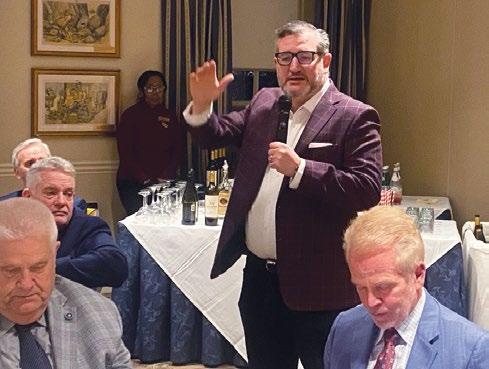
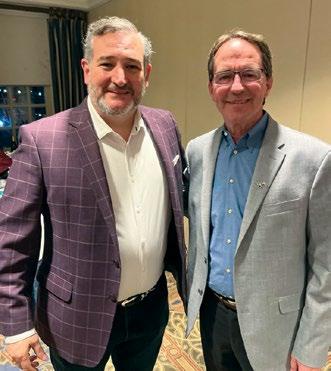
Following Herridge was Yael Schacher with Refugees International, who spoke on the Asylum Seeker Work Authorization Act. After Schacher, Rob Engstrom with Wolfe Street Partners took the stage to discuss the 2024 elections and the balance of power in the House, Senate and White House. Rep. Kevin Hern (R-OK) then joined the stage to close out the general session.
Later that same day, the NFA Leadership and Business Partner Forum Reception was held in the West Atrium Gallery of the Royal Sonesta where vendors were able to network and mingle with NFA members.
The Congressional Breakfast on March 7, brought franchisees and NFA supporters together with members of Congress to discuss the organization’s legislative goals. A dozen separate groups then traveled to Capitol Hill for morning meetings in the offices of members of the Senate, before meeting at the Charlie Palmer Steak for the Lunch on the Hill. NFA Government Relations Committee Chair Dominic Flis introduced Rep. Henry Cuellar (D-TX) and Sen. Joni Ernst (R-IA) who captivated the audience with their speeches. The lunch concluded with the BURGER KING Franchisee PAC Cup Awards and attendees were dismissed to visit members of the House.
The BURGER KING Franchisee PAC Cup Contribution Award is given to the regional association that raised the most money for the PAC, and the BURGER KING Franchisee PAC Cup Participation Award is given to the association that has the highest percentage of PAC participation among its membership. Both awards are equal in stature and significance, and contributions are calculated each year. The PAC Cup Participation Award went to the New England Franchisee Association, which had 36% of their members contributing to the PAC. The PAC Cup Contribution Award went to the Mid South Franchisee Association, which raised more than $16,000. n
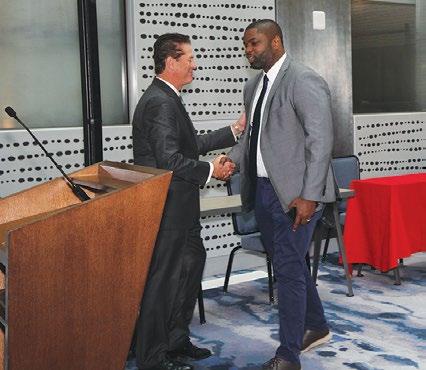
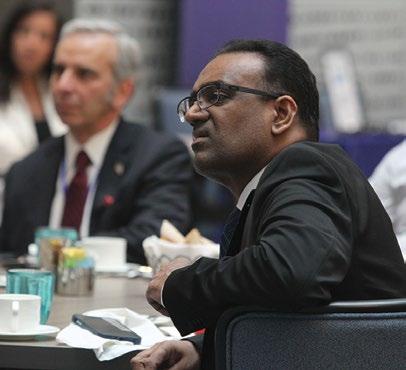


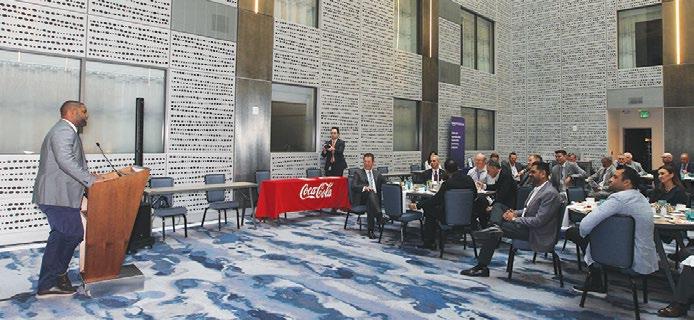
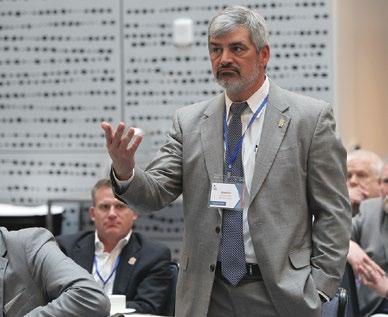
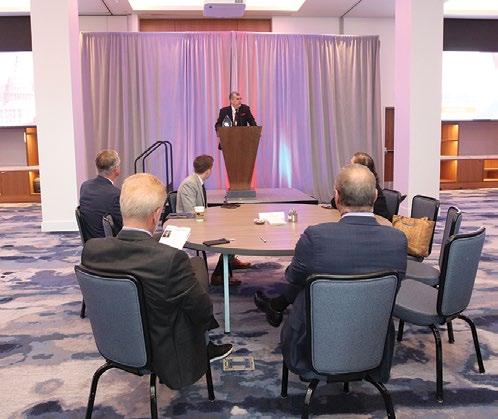
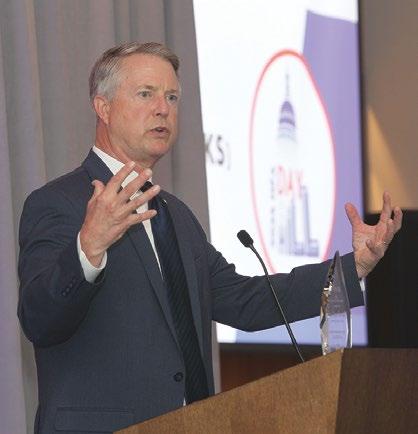
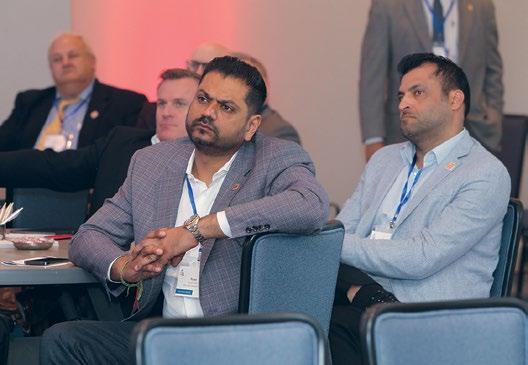
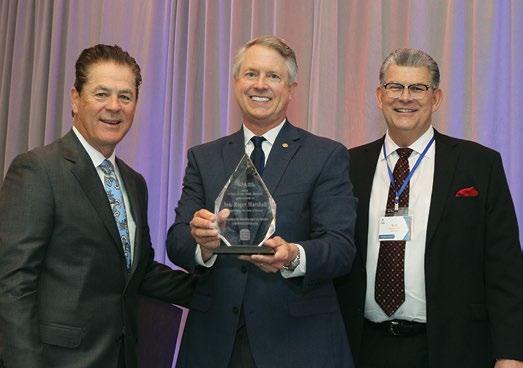
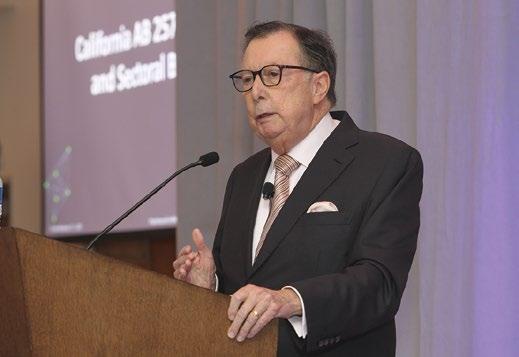
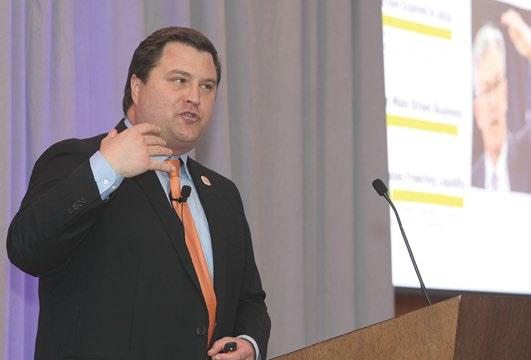
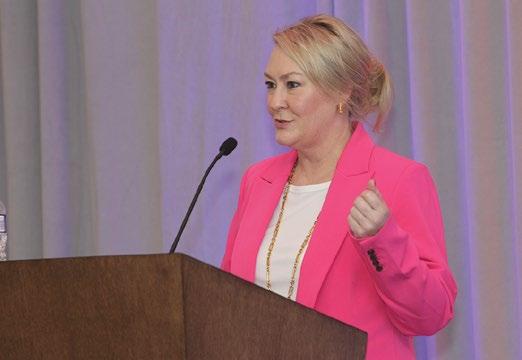
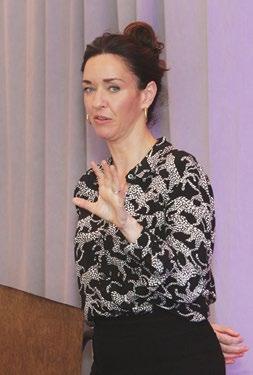
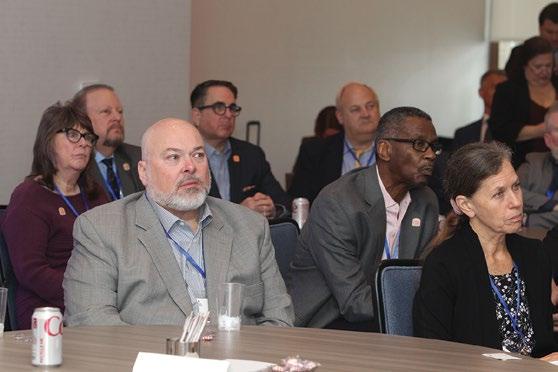
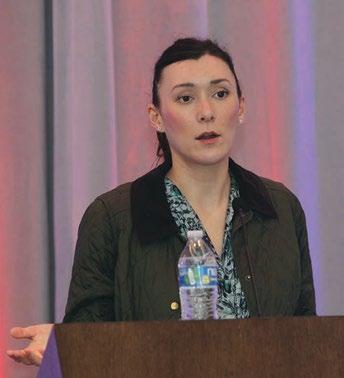
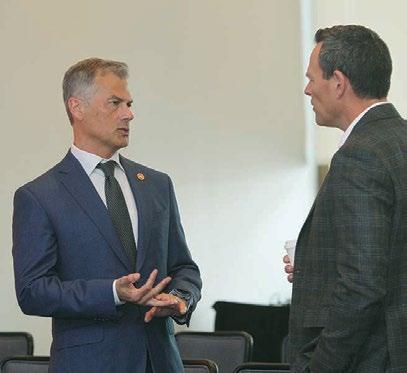


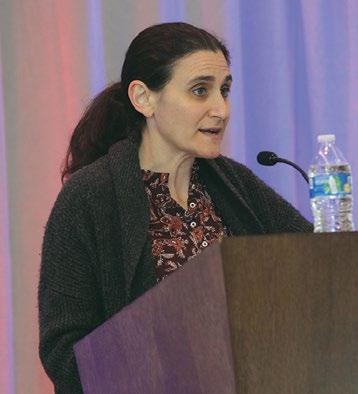
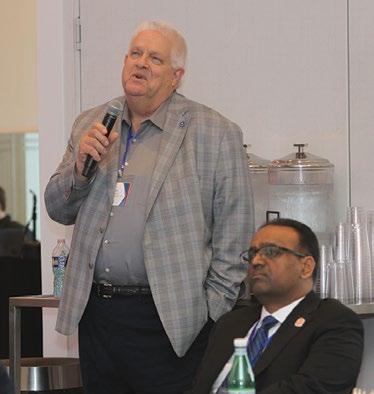

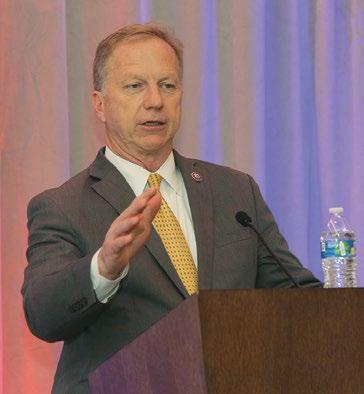

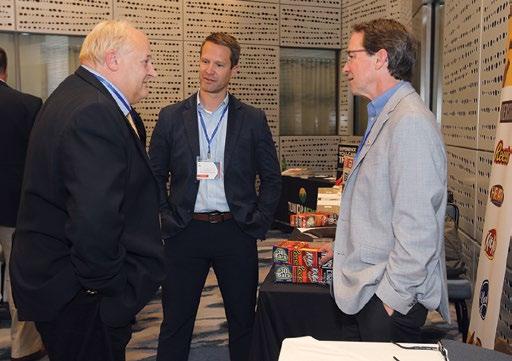
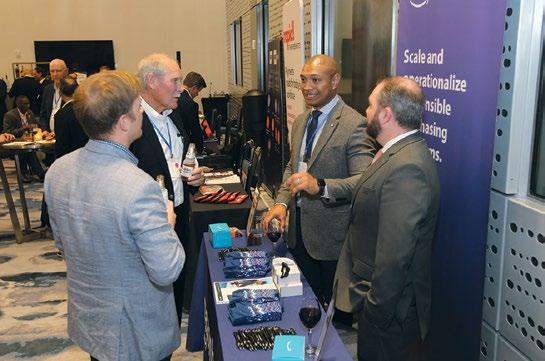
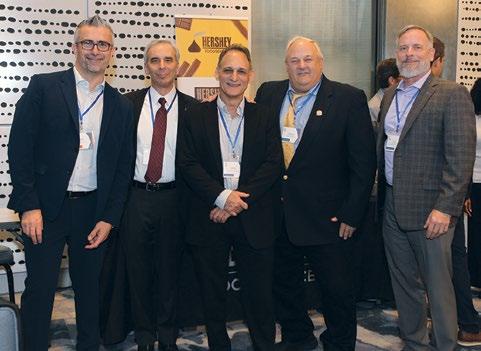
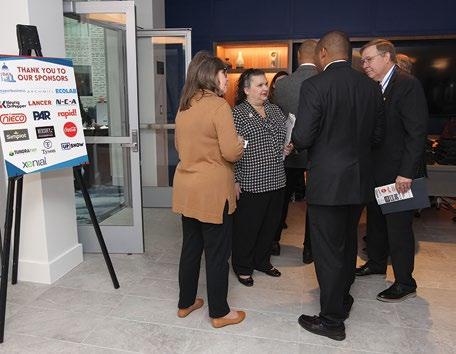
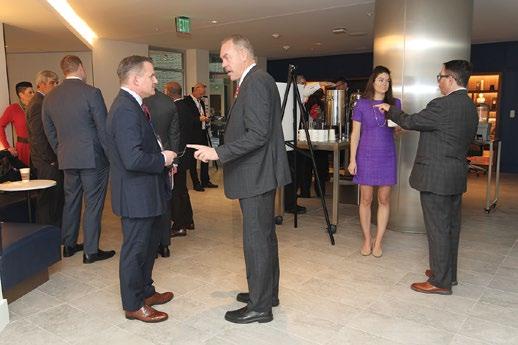
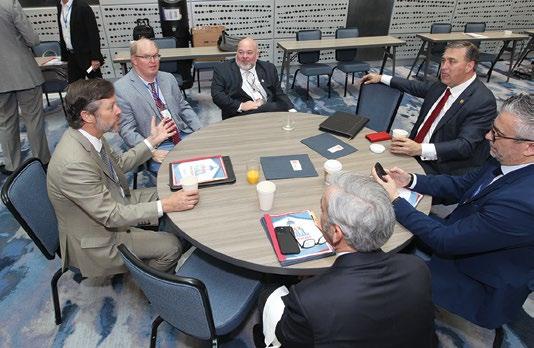

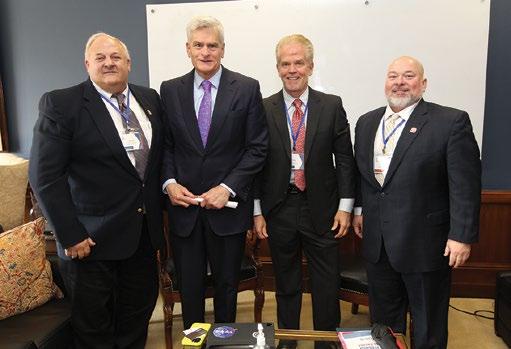


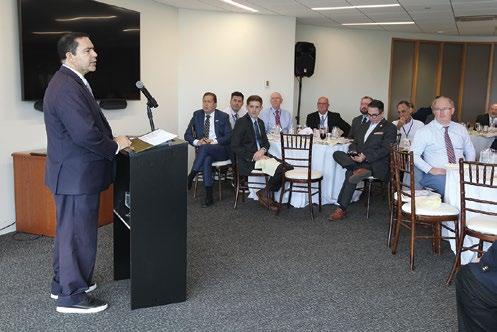
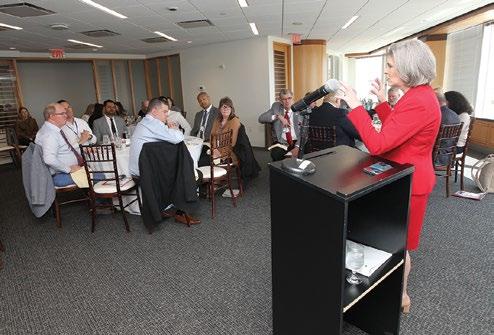
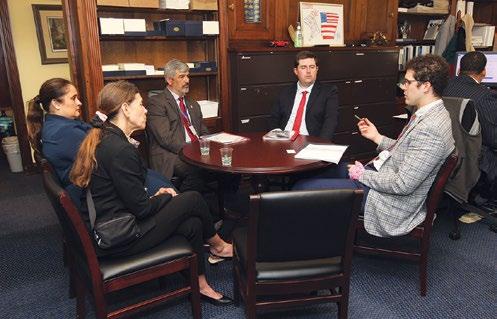
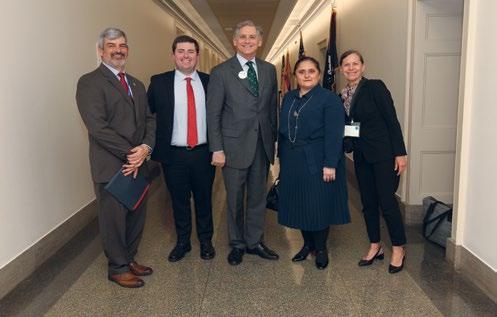
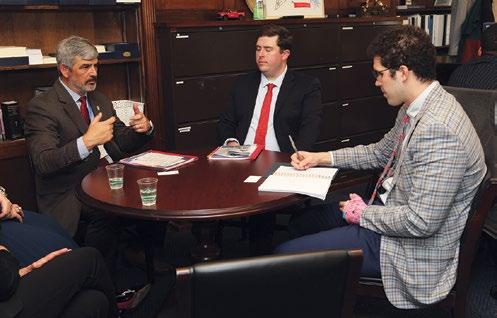
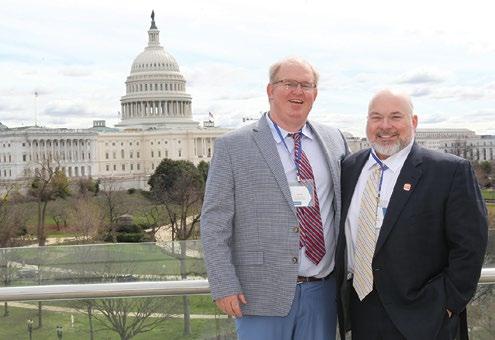
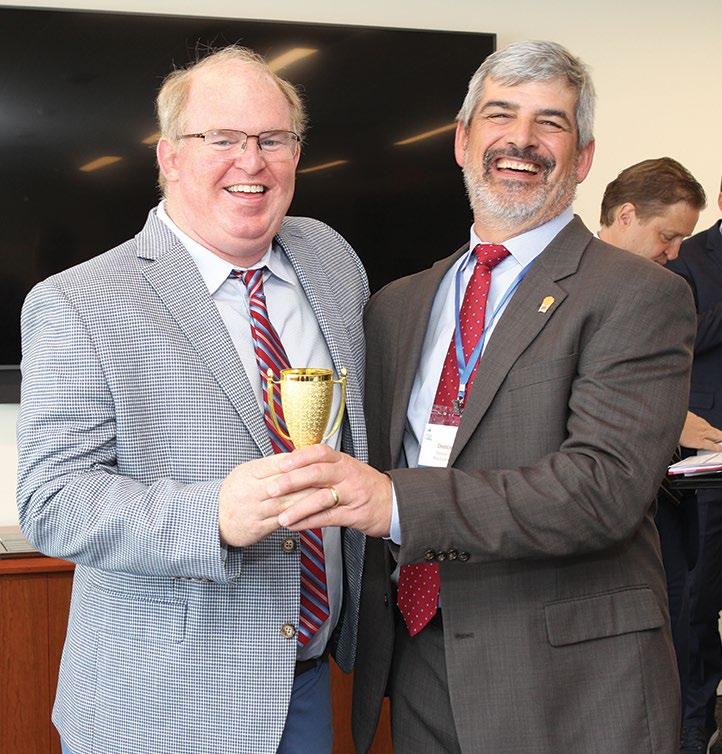
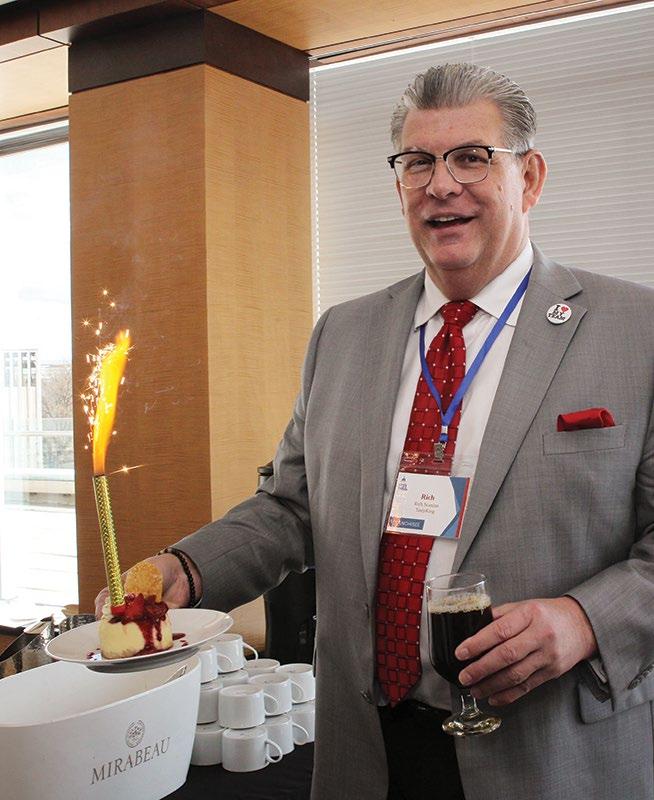
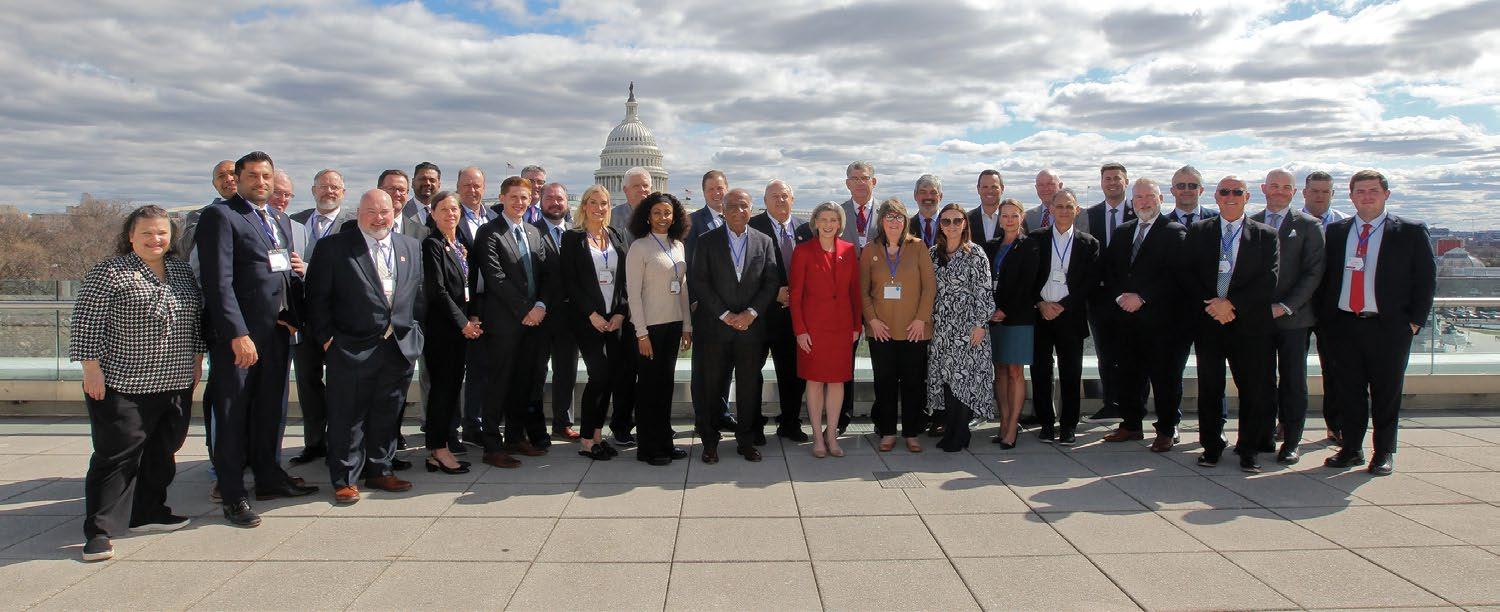
NFA thanks those who made it out to Capitol Hill for the 2024 NFA Day on the Hill! Thank you for making this year’s event a success!













JULY 1 - AUGUST 9


Bring the mission of the Burger King℠ Foundation to customers at the register! The Summer Round Up Campaign will allow guests to round up their total to the nearest dollar to support the Foundation’s educational programs through scholarships and school supplies!
During the first in-restaurant fundraising campaign of the year, dedicated franchisee partners and their BK® Team Members raised a record-breaking $812K through the Spring Round Up campaign in just six weeks - that's $312K more than last year and exceeding the campaign goal of $450K!








The Burger King℠ Foundation awarded $4.5 million in scholarship dollars raised in restaurants, bringing education to the lives of college-bound high school seniors, Burger King® employees, and their families. This brings the Foundation’s total impact to over $60 million in scholarships awarded to over 51,000 students across North America since 2000.
We want to thank each of our franchisees for their continued support over the years, as well as the McLamore Family, who fund the Foundation’s three largest scholarships, the $60,000 James W. McLamore WHOPPER® Scholarship awards.
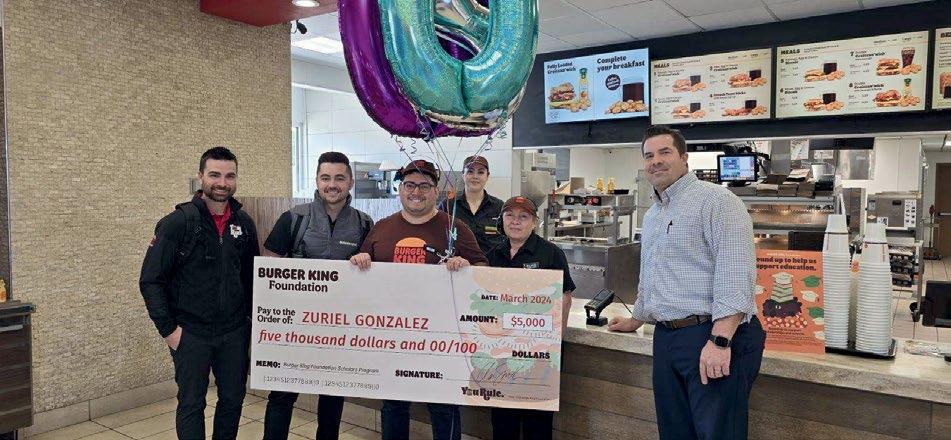
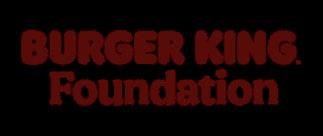
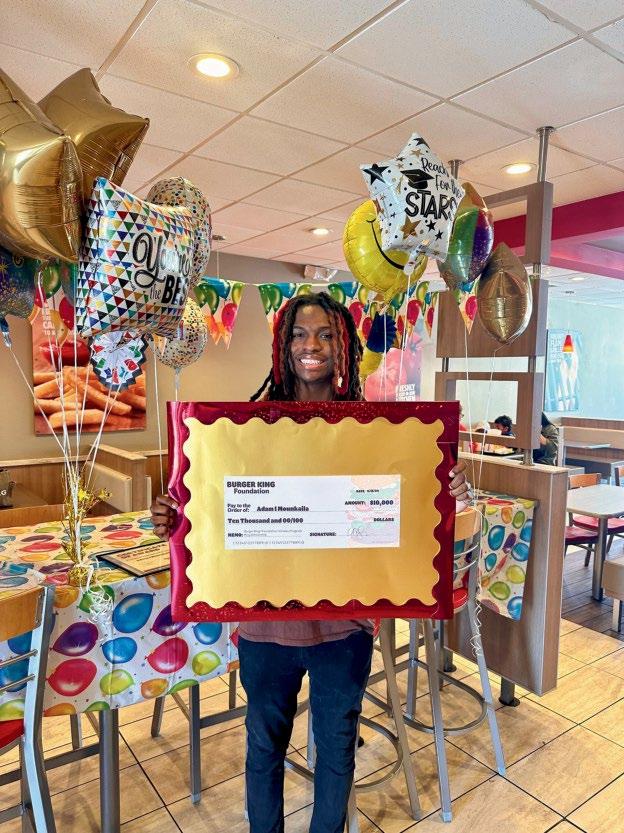



OnAugust 22, 2023, we advised all employers – whether their workforces are unionized or not –about the National Labor Relations Board (NLRB) decision in Stericycle Inc. In Stericycle, the NLRB articulated its new standard in analyzing whether employer work rules are impermissible under the National Labor Relations Act (NLRA). Under the new standard, employers must use caution when creating a work rule or policy that could reasonably be interpreted to “chill,” restrict or prohibit an employee’s rights to protected concerted activity under Section 7 of the NLRA, such as an employee’s rights to support unionizing or engaging in concerted activity to improve working conditions. Such a rule will be presumed by the NLRB to be unlawful. Since the Stericycle standard was announced, the NLRB has issued a series of decisions finding a wide range of work rules to be unlawful, ranging from prohibitions on insubordination to prohibitions on falsifying employment applications. What follows is a short digest of some of the work rules that have recently come under scrutiny by the NLRB.
In United Electrical Contractors Inc., decided November 9, 2023, the General Counsel argued, and the NLRB agreed, that a prohibition on “disrespect toward supervision” violates the NLRA, because it could reasonably be construed by employees to prohibit protected concerted activity. The NLRB cited to Casino San Pablo for support, where the NLRB previously said, “the act of concertedly objecting to working conditions imposed by a supervisor, collectively complaining about a supervisor's arbitrary conduct or jointly challenging an unlawful pay scheme – all core Section 7 activities – would reasonably be viewed by employees as ‘disrespectful.’” The NLRB said the “disrespect” rule would reasonably tend to chill employees' exercise of their rights under the Act and under Stericycle is presumptively unlawful.
Also in United Electrical Contractors Inc., the NLRB found rules requiring honesty on company records, including on employment applications, could reasonably be construed to chill an employee from leaving union-affiliated work history off of an application or falsely denying an intention to engage in organizing activity. The rule in that case did not refer to unions or unionization, but prohibited, “[d]ishonesty or falsification of any company records, including but not limited to employment applications and time entries,” and “[p]roviding false or misleading information to any company representative or in any company records, including the employment application, benefits forms, time entry, expense reimbursement forms and similar records.”
Citing to decisions that stood for the proposition that employees may lie about or omit their union employment or affiliation on applications, the Board found the above rules to be “overbroad” and stated that they interfere with the “rights of applicants and employees to falsely deny union affiliation or intent to engage in union activity, and to omit union-affiliated work history from their submissions.”
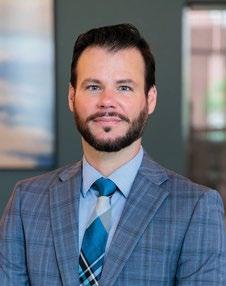
by MATTHEW GUERRERO
However, in General Motors LLC, decided January 24, 2024, the NLRB found a similar rule not to be overbroad and therefore legal. The rule there stated that “[f]alsification of personnel or other records” will be sufficient grounds for disciplinary action. In analyzing the work rule, the NLRB found that “no employee, though economically dependent on the employer and contemplating engaging in protected, concerted activity, would reasonably interpret the plain language of [this rule] to prohibit protected, concerted activity.” The NLRB further noted that the rule’s intent is to prohibit the falsification of personnel and other company records, which the Employer had a legitimate interest in ensuring are accurate.
Because these two rules are very similar, employers need to narrowly tailor their work rules regarding honesty. The major difference between the two rules is that the improper rule in United Electrical Contractors Inc. explicitly referred to honesty on “employment applications” without creating an exception for union affiliation or union-related work history.
Also in United Electrical Contractors Inc., the NLRB found a work rule that prohibits, “[r]estricting production or influencing others to do so” unlawful. “I find that employees would reasonably construe the prohibition on ‘restricting production’ to encompass a prohibition on striking and picketing,” said the NLRB. Employees have a right to engage in those activities under Section 7 of the NLRA.
Prohibitions on Obscene or Abusive Language
Additionally, a rule against using obscene or abusive language was found to violate the NLRA because the rule was drafted “without stating that the rule was not intended to bar employees' Section 7 activity.” “The rule does not provide any additional context showing that it is meant to address only language that involves violence or other unlawful conduct or that it does not prohibit Section 7 activity. I find that a reasonable employee would understand this rule to interfere with statements that are protected by the Act.”
Employers should be aware that the NLRA has routinely decided that some profanity and even defiance must be tolerated. The NLRA protects employees even in instances where the employee is rude or disrespectful, and profanity will not bar an employee from invoking their rights under the NLRA. See, for example, NLRB v. Chelsea Laboratories
Employers have to be careful in limiting employee cell phone use. “On its face,” said the NLRB on such a rule, “this rule gives the employer unfettered discretion to decide if an employee may use their personal phone at any time and in any area of a facility, including during breaks and other periods that are an employee's own time. Employees would reasonably conclude that they could not, without obtaining the [employer's] authorization, engage in activities such as using their own smartphone to call a union representative during a lunch break.”
The work rule in question, which simply prohibited “[u] nauthorized use of telephones” was thus found to be unlawful. The General Counsel argued, and the NLRB agreed, that “requiring an employee to seek the approval of management in order to use their personal phones for Section 7 communications is tantamount to surveillance of such activities, and would tend to have a chilling effect on employees' exercise of their rights.”
Citing to precedent, the NLRB also recently said that employees would generally construe a broad prohibition against “disrespectful” conduct and “language which injures the image or reputation” of the employer as encompassing Section 7 activity, such as employees' protected statements objecting to their working conditions or seeking the support of others to improve them. The rule, which prohibited “[d]iscourtesy to a customer, vendor, or the general public resulting in a complaint or loss of good will” was deemed unlawful.
A similar rule more recently in General Motors LLC, which stated discipline could result from “making or publishing of false, vicious or malicious statements concerning any employee, the Company, or its products” was found to be unlawful. Citing to precedent, the NLRB said that the Board has consistently found that rules prohibiting the making of “false, vicious or malicious statements” violate the NLRA because “they include within their proscription false statements that may nonetheless be protected.” In other words, the prohibition on “false . . . statements” is too broad. For, in the same decision, General Motors LLC, the work rule that discipline could result from “[a]busive language to any employee or supervisior” was lawful. The distinction is that the prohibition on false statements could reasonably relate to and deter an employee from engaging in their right to protected, concerted activity, but a similar prohibition on “abusive language,” without any further context, would not reasonably chill an employee’s protected speech.
In the confusing wake of Stericycle, employers are often left not clearly knowing whether their work rules may be deemed presumptively unlawful under the NLRB’s current standards. Employers, however, are not left without some guidance. First, the more narrowly tailored their work rules are to legitimate and substantial business interests, the less likely they will be deemed unlawful.
Even presumptively unlawful work rules can survive scrutiny where employers can show that the work rule “advances a legitimate and substantial business interest” that cannot be advanced “with a more narrowly tailored rule.”
Employers must use careful language and draft their work rules with an eye toward how the NLRB may view it. As seen above, very broad language can be interpreted to encompass and impede upon an employee’s Section 7 rights. All employers should be reviewing existing work rules to determine whether they can be construed as unlawful under the Stericycle standard and revise them as needed. Caveats that a policy or work rule is not intended or designed to impede upon an employee’s Section 7 rights can also aid employers in keeping their policies and handbook provisions lawful. Additionally, avoiding anti-union language anywhere throughout an employer’s policies and handbooks will also help avoid an interpretation that any given rule is designed to chill employees’ Section 7 rights.
If you have questions about how to comply with the recent NLRB decisions, contact your servicing Laner Muchin attorney, or Laner Muchin partner Robert T. Bernstein may be reached at rbernstein@lanermuchin.com. n
LANER MUCHIN is a firm that specializes in employment-related litigation, labor relations, employment law counseling, employee benefits, executive compensation and business immigration matters. Laner Muchin may be reached at www.lanermuchin.com or (312) 467-9800.



As a customer experience speaker, I often share how the smallest interactions can impact a customer's perception of a brand. It can be in negative or positive ways. A recent experience at a bowling alley brought this to light in an unexpectedly vivid way.
While enjoying an afternoon of bowling with my son, a seemingly minor interaction on the lane next to us caught my attention. A young man who was in his mid-20s was there with his girlfriend and he was struggling at the beginning of his first game.

by DANNY SNOW
After his third consecutive gutter ball, an employee happened to see this. The employee walked by and jokingly offered to put up the bumpers for him. In my mind, I found this to be rather amusing. It’s the same kind of joke I would make to a buddy of mine if we were bowling together, and he did the same thing.
At the same time, I realized how embarrassing this moment must have been for the guy in front of his girlfriend.
Having been a league bowler at this particular alley for the past year, I knew the employee who made the comment. I also knew her intention at that moment was light-hearted. Had this been a regular bowler at the alley, it likely would have been received very
Turn insights into higher profit margins, greater operational efficiencies, and lower food and labor costs with our maintenance-free enterprise restaurant management solution.


PAR Data Central is currently equipping 150+ Burger King locations with the right tools to succeed in this evolving industry.



Iused to think that businesses were remarkably complicated and beyond my comprehension.
Then I learned that I was wrong. Businesses are remarkably simple. A business creates relevant value for an intended audience, charges for that value, and works to continually improve that value for that audience. That’s it. It’s not complicated at all. And it’s true for small, medium and large businesses.
I’ve also learned that there are a few things that all successful businesses have in common. One of those things is they sustain focused efforts.
The number one reason that I have seen why businesses fail is that people lose their focus. There are literally dozens of reasons why people let this happen. They chase a hot new idea that people are talking about, they get bored with what they are doing, they get tired of the infinite number of little challenges that they have to deal with as an entrepreneur, they start bickering with other people on the team, and on and on.
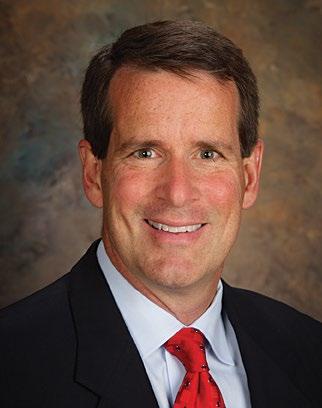
by DAN COUGHLIN
The number one reason why businesses succeed is that people sustain focused efforts. They keep on keeping on and they keep getting better at what they are doing. I’m always amazed at the incredible number of different ways that businesses provide value to customers and get paid for it. Please don’t fall into the trap of thinking you have to pick the perfect industry to be in. It’s not true. If you identify something that would be of real value for a certain group of people who are capable and willing to pay you for it, then you have the makings of a successful business. However, that’s just the starting point. The more important key to success is to wake up every day and sustain focused efforts.
I thought about giving you a very long list of the many, many different industries and methods that people I’ve known have used to make a very good living as entrepreneurs, but then I realized that’s not necessary.
What is necessary is for you to realize that one of the most important keys to success as an entrepreneur is to sustain focused efforts. You have to be wise with money and not go into the poor house through your own stubbornness. You may need to adjust the value you are delivering or the audience you are pursuing until you find the true sweet spot where you are delivering relevant value for a specific audience who is capable and willing to pay for that value. You may need to improve to a point that what you are offering is truly better than your competition. However, over the long term the key is to sustain focused efforts.
When money is short, adjust your spending, but sustain focused efforts.



When a long-time customer decides to stop working with you, sustain focused efforts.
When a potential great customer decides to go with someone else, sustain focused efforts.
When you injure yourself playing pickleball because you decided you needed a break from too much work, sustain focused efforts.
When you feel lousy or worn out, take a vacation, give your mind a rest and then sustain focused efforts.
I encourage you to study successful entrepreneurs, people like Oprah Winfrey, Sam Walton, Steve Jobs or the person in your neighborhood who built a successful enterprise in any industry. One secret that will reveal itself to you is how that person sustained focused efforts over an extended period of time. n
Since 1998, DAN COUGHLIN has worked with serious-minded leaders and executives to consistently deliver excellence. He provides Executive Coaching, Leadership and Executive Development Group Coaching Programs, and seminars to improve leadership and management performance. His topics are personal effectiveness, interpersonal effectiveness, leadership, teamwork, and management. He also guides strategic decision-making meetings. And now he is also focused on helping people to develop their entrepreneurial mindset. Visit his free Business Performance Idea Center at www.thecoughlincompany.com



Much of what plagues organizations these days has to do with their processes. And the processes have everything to do with the personal processes of the individuals involved. (Read between the lines here: “organization” can refer to two people in a relationship, as well as a multi-national corporation.) Process vulnerabilities are challenged with stress, which is mounting daily in our world because of the increasing volume and speed of input that changes things. Most of you reading this have received more priority-shifting and project-creating stuff in the last seventy-two hours than your parents probably received in a month.
Change always produces pressure on a system, even if it is totally for the best. Because systems are created to match the needs, direction and outcomes of the organization at a certain point in time, when times change and those drivers are altered in any way, it puts stress on the organism until it adjusts appropriately. How well does it respond to new situations and input? What happens to the systems, the grooves, the procedures, when something out of the ordinary, something unexpected in substance or scope, lands on the radar? And not just the unexpected stuff out of left field – what happens when already-foreseen new goals and horizons are identified and tossed into the organization to implement?
Pressure on a system will always show up at the weakest connection points. Where are they, organizationally? The same places they are individually – avoidance of decisions; unclear,


incomplete or non-existent communication; ambiguous accountabilities; and swollen inventories of potentially conflicting commitments.

by DAVID ALLEN
Example: A new situation occurs (a competitive product launched, a senior executive fired, a new regulation enacted, an irate neighbor, etc.) Someone is aware of the situation senses that something ought to be done about it, but doesn’t decide what, exactly, needs to be done. People who ultimately will need to know about the problem or issue to deal with it are not informed. There is a lack of clarity about who owns the resolution of the situation and therefore no one has their gut tied enough to it to move it to completion (amidst the chaos of everyone else’s current set of agendas). And anyone aware that they have some involvement with the situation or its impact feels the pressure of an “open loop” holding some piece of their psyche hostage, contributing further to overloaded circuits. This then leads that person to avoid action decisions, and the whole cycle becomes contagious. Does any of this sound familiar to you, about something in your universe, as you read this? Virtually everyone I have ever coached has identified at least one if not several such scenarios going on, at that moment.
The insidious factor is that the faster things change, the easier it is for these unproductive and unhealthy syndromes to emerge and multiply. And the more senior the person involved in these less-than-ideal practices, the more they are magnified in consequences for the culture, simply because his/her micro is a lot of other people’s macro. Ever been whipped around at the end of a chain of folks hanging on to each other on an ice rink? One of the greatest sources of stress and saboteurs of productivity is mid- to senior-level people avoiding action decisions about situations when they first arise; waiting until the heat gets so hot (from their boss, the client or the circumstances) to determine what needs to happen and who needs to do it; and at the last minute spewing the resultant crisis through multiple levels in the organization, creating pain, frustration and the derailment of process and morale.
One of the greatest sources of stress and saboteurs of productivity is mid- to senior-level people avoiding action decisions about situations when they first arise.

The bad news is that this seems almost universal, in even the best of environments. The good news is that there are things that can be done to improve those practices. But it’s not handled by blaming individuals or preaching platitudes about productivity and quality. It can only be improved by a change in the behaviors of all the people involved. If physical and mental environments were kept cleaner, focus was more specific on discrete inputs, systems made seamless and more efficient and kick-start actions were determined and appropriately allocated on open items from the start, these weak spots in organizational process can be plugged up. Whole cultures can move themselves up the food chain in constructive responsiveness to change. We’ve seen this happen in varying degrees, depending upon the buy-in of the most visible players and whether those old dogs are willing to learn new tricks.
The most successful executives/professionals/people keep their decks clear, make decisions on the front end, dispatch the results to trusted people and systems, track commitments rigorously (their own and others’) and get physically engaged taking actions on the projects they own. Those are learnable behaviors, able to be systematized, that build capacity for dealing with the next surprise as the next opportunity. n
After decades of in-the-field research and practice of his productivity methods, DAVID ALLEN wrote the international best-seller Getting Things Done (GTD). Published in over 28 languages, TIME magazine heralded it as “the defining self-help business book of its time.” In 2015, he released a new edition of the book, with new insights, updates, and discoveries about the GTD methodology and its many personal and professional applications.
PROVIDING EDUCATIONAL SCHOLARSHIPS TO VETERANS PURSUING A CAREER IN HEALTH & FITNESS



Most businesses in the United States are mandated to submit ownership details to the Financial Crimes Enforcement Network (FinCEN) by the deadline at the end of 2024. This directive, stemming from the Corporate Transparency Act (CTA), aims to identify the true owners or controllers of both domestic and foreign enterprises operating in the U.S.
The US Treasury Department is expected to challenge this ruling. Meanwhile, requests for postponing the reporting deadline



contributed by Mize CPAs
have been made by organizations like the American Bar Association, the American Institute of Public Accountants (AICPA), and the American Bankers Association, but no additional legal actions are currently underway.
As it stands, the reporting deadline of December 31, 2024, remains in effect for the majority of U.S. businesses. Companies are advised to proceed with preparations to meet this requirement. Businesses established before January 1, 2024, have until
January 1, 2025, to file their initial reports. Businesses established during 2024 have 90 days after registration to comply, and those established from 2025 onwards have 30 days.
A recent court ruling has modified the application of the CTA.
The reporting process is straightforward. Businesses should prepare by collecting the following information:
• The business's full legal and trade names, if applicable.
• Current complete U.S. address.
• Jurisdiction under which the business was formed (state, tribal, or foreign).
• IRS Taxpayer Identification Number.
A federal district court in Alabama has specifically exempted the National Small Business Association and its members from these requirements. This exemption remains effective while the court's decision is under appeal by the Department of the Treasury. Businesses not affected by this ruling are still required to comply with the CTA.
Additionally, collect for each beneficial owner and company applicant:
• Full legal name
• Date of birth
• Current complete address
• A unique identifying number and issuing jurisdiction along with an image from a valid document such as a US passport, state driver's license, or a state, local government, or tribal issued ID document. n
For further details or to file a report, visit the BOI E-Filing System on the FinCEN website (boiefiling.fincen.gov).



The success of your franchise depends on your building, its contents and the people who staff it. Imagine the consequences for your restaurant if there were a serious accident, fire or theft. These disasters can impact your ability to service customers and run your business, plus they can be costly.
With a Business Owner’s Insurance policy (BOP) from co-brokers Elevanta and Lockton Affinity, your franchise can receive a tailored combination of insurance coverage, including property, business interruption, general liability and umbrella coverage. This policy is a convenient, affordable way to protect your business and its contents from the costs associated with property damage and third-party injuries.
About Business Owner’s Insurance for Franchise Businesses
A business owner’s policy is a handy package of property and liability protection that typically includes:
• Business property coverage — Helps cover your building and its contents, including your equipment, furnishings and inventory.
• General liability coverage — Helps cover your business for lawsuits or damages that result from a third-party personal injury or property damage claim.


• Business interruption coverage — Helps make up for some of your lost income if your franchise experiences a fire, break-in or other business-disrupting event.
• Business umbrella coverage — Helps provide protection beyond existing limits and coverage of other policies.
This broad coverage protects you and your restaurant from several everyday risks such as:
• A customer enters your restaurant and trips over the floor mat in the entryway. In the fall they suffer a broken hip, resulting in costly medical bills and a claim for personal injury damages. Your BOP coverage protects you and covers the costs.
• A rash of burglaries hits the area, and your business is broken into overnight. The thieves steal some inventory, two computers and TVs. Your BOP coverage helps you replace the stolen property.
• An oven hood catches fire due to grease build up. The oven is extremely damaged and there's smoke damage throughout the kitchen. Your BOP covers the damage to the building and its contents.
A BOP insurance package offers several advantages for restaurant businesses like yours.
Convenience: A BOP is a convenient way of buying insurance. Getting coverage for your business can be confusing and stressful enough without having to pick out all the right coverage à la carte.
Cost savings: A BOP can save most people money on their coverage. That's because the package is designed so that coverage doesn’t overlap, eliminating the likelihood that you will pay for the same thing twice.
Broad protection: A BOP can help ensure you have all the standard coverage you need. You won't be risking coverage gaps and exposures that are possible when you combine generalized standalone policies.
Industry specific: A BOP is often a better choice for small- and medium-sized businesses in a particular industry. Every industry has unique risks that a BOP policy is specifically designed to protect against.
A BOP is consistently one of the most popular insurance policies available for restaurant businesses. It is a quick and easy way to get the standard industry coverage and limits your business needs in one convenient package. For restaurants like yours with property and liability risks, it's a smart choice.
While a BOP combo doesn't include all the insurance products you may need, it's a great starting point for key property, liability and business interruption coverage.
If you have questions about a BOP for your business or other
insurance coverages like Workers’ Compensation, Employment Practices Liability, Commercial Auto and Cyber Liability, co-brokers Lockton Affinity and Elevanta have you covered.
Whether you are a first-time franchise owner, have been in the business for years or have multiple locations, Elevanta and Lockton Affinity understand the risks your restaurant faces and are here to support you.
Visit Elevanta.LocktonAffinity.com to learn more. n
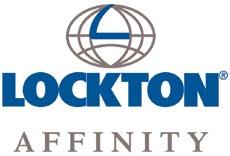
The Elevanta Insurance Program is administered by Lockton Affinity, LLC d/b/a Lockton Affinity Insurance Brokers LLC in California #0795478. Coverage is subject to actual policy terms and conditions. Policy benefits are the sole responsibility of the issuing insurance company. Coverage may be provided by an excess/surplus lines insurer which is not licensed by or subject to the supervision of the insurance department of your state of residence. Policy coverage forms and rates may not be subject to regulation by the insurance department of your state of residence. Excess/Surplus lines insurers do not generally participate in state guaranty funds and therefore insureds are not protected by such funds in the event of the insurer’s insolvency. Elevanta will receive a royalty fee for the licensing of its name and trademarks as part of the insurance program offered to the extent permitted by applicable law.
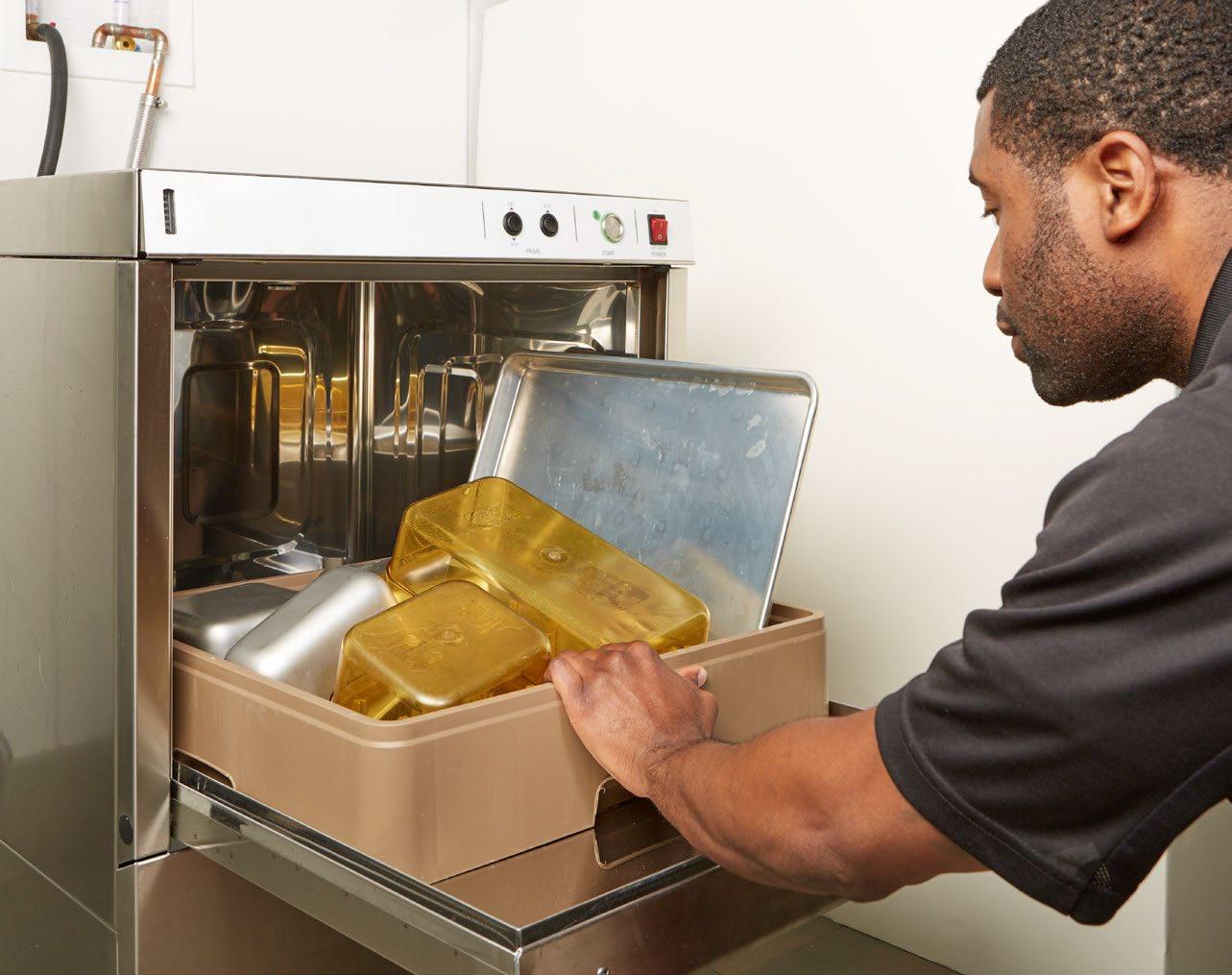

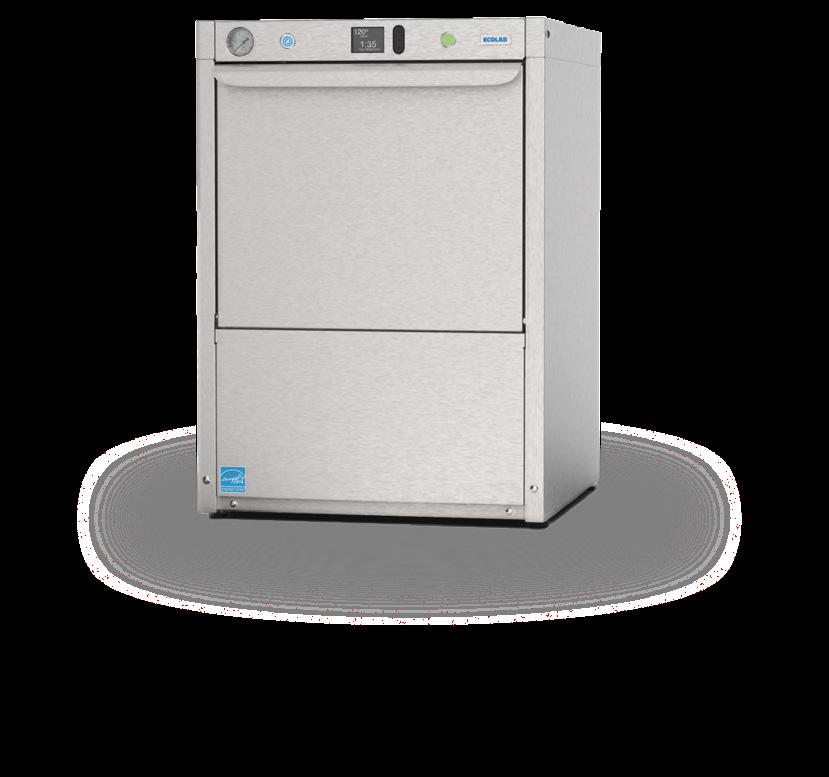


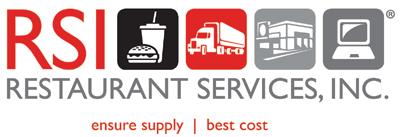
Developing a robust security culture within an organization is crucial in today’s digital landscape, where cyber threats continue to evolve in sophistication and frequency. Establishing a culture that prioritizes security not only safeguards sensitive data and systems but also the assets in your BURGER KING® restaurants. Here are key strategies to cultivate a strong security culture:
1Leadership Commitment and Support: A strong security culture begins with leadership. Owners, executives and managers must visibly champion security initiatives, allocate resources and integrate security training into the organizational strategy. Their commitment underscores the importance of security across all levels.
2Education and Awareness Programs: Regular training sessions and awareness programs are essential. All team members, from restaurant managers to directors of operations, should be thoroughly educated on cybersecurity best practices. This includes identifying phishing attempts, using strong passwords, recognizing social engineering tactics and understanding their role in protecting the organization.
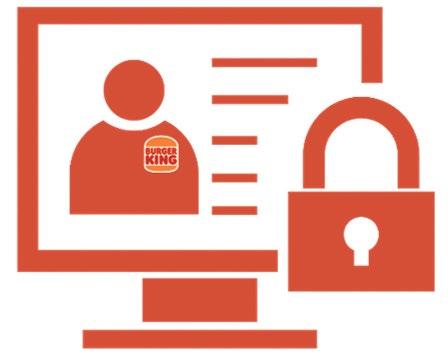
3Clear Security Policies and Procedures: Well-defined security and operational policies provide guidelines on acceptable technology use, data handling practices, incident reporting protocols and access controls. In restaurants, this includes cash management, authorized deposit locations, authorized petty cash usage and to never use gifts cards to pay company obligations. Frequent communication and reinforcement keep these guidelines top of mind.
4Encouraging Proactive Reporting and Feedback:
Establishing a culture where employees feel empowered to report security concerns without fear of reprisal is crucial. Leaders should encourage team members to report suspicious activities, breaches or vulnerabilities through accessible channels. Feedback mechanisms should be responsive to address concerns promptly.


5Promoting Accountability and Ownership: Every individual within the organization should understand their responsibility in maintaining security. Assign accountability for security-related tasks and encourage a culture where employees take ownership of protecting organizational assets.

by BRUCE AHRENDT
6Continuous Monitoring and Improvement: Security is not a one-time effort but a continuous process. Implement monitoring tools to detect anomalies and potential threats in real time. Conduct regular assessments, audits and simulations (like phishing tests, or phone scams) to identify weaknesses and areas for improvement.
7Rewarding Security-Conscious Behavior: Recognize and reward employees who demonstrate exemplary security practices or contribute to enhancing security measures. Positive reinforcement encourages desired behaviors and motivates others to prioritize security.
8Adapting to Evolving Threats: Stay informed about emerging threats and attacker trends. Foster a culture of adaptability and readiness to respond swiftly to new challenges or malicious tactics that affect your operations.
By implementing these strategies, organizations can cultivate a security culture that protects assets, builds resilience against cyber threats and protects our stakeholders’ interests.
How you deploy your Security Awareness Program is as crucial as the message itself. Here are several effective methods and approaches for conducting impactful security awareness training:
1In-Person Training: At new hire orientations, quarterly training or weekly in-restaurant stand-ups, make it a point to emphasize security awareness policies or topics. In-person engagements often connect more deeply with your team and reinforce management’s commitment to security.
2Computer-Based Training (CBT): CBT modules offer flexibility by allowing employees to complete training at their own pace and convenience. These modules often include interactive quizzes, simulations, and multimedia elements to reinforce learning.
3Phishing Simulations: Phishing simulations involve sending mock phishing emails to employees to assess their ability to identify suspicious messages. These exercises provide real-world scenarios without actual risk and help your team understand the tactics used by attackers. Oftentimes, phishing messages can be easily identified by obvious errors such as typos or outdated information. Feedback and coaching based on simulation results can further enhance awareness.

4Gamification: Gamification integrates game elements into training to increase engagement and motivation. Employees earn points, badges or compete in challenges related to security topics. This approach not only makes learning fun but also reinforces knowledge retention and encourages healthy competition among participants.
5Role-Based Training: Tailoring training content to specific job roles or departments ensures relevance and applicability. For instance, restaurant staff may receive specific training on payment card data and restaurant cash management, while office employees focus on email security and safe browsing habits. Customized training helps employees understand how security practices relate to their daily responsibilities.
6
Scenario-Based Training: Scenario-based training presents employees with realistic cybersecurity incidents and guides them through appropriate responses. An example may be role-playing a phone scam scenario where a restaurant ARL calls to request gift cards to be purchased to pay a vendor. Participants learn to recognize the situation, make decisions, and learn from the outcomes. This hands-on approach fosters critical thinking and prepares employees to react effectively under pressure.
7Awareness Campaigns: Launching broader awareness campaigns can reinforce ongoing training efforts. These campaigns may include posters, newsletters and regular meeting updates on emerging threats or security tips. Visual and easily digestible content helps keep security top-ofmind for employees.
8Leadership Engagement:

Leadership involvement in training sessions and communications underscores the importance of security throughout the organization. Executives can share insights, endorse security initiatives and demonstrate their commitment to a secure culture. Their visible support encourages employees to prioritize cybersecurity.
9Variety and Cadence Are Key: Frequency and variety of training methods have a significant impact on the effectiveness of your program. Reinforcing these topics through formal training, reminders in recurring meetings, scenario testing and visuals in the work environment all combine to develop your team’s ability to recognize suspicious scenarios.
Whether you’re just beginning to establish your organization’s security culture or seeking tips to strengthen it, several trusted sources provide invaluable free resources and information. The Sans Institute offers free workshops, webcasts, newsletters and more. The Cybersecurity & Infrastructure Security Agency empowers organizations to promote online safety and regularly shares important information and tips, including a robust program in October, which happens to be Cybersecurity Awareness Month. Microsoft provides resources to help navigate cybersecurity literacy and skills for all.
Additionally, there are many reputable vendors that provide tools and content to support your security awareness program. These include automated phishing simulations, phone call scams, computer-based training, surveys, informative posters and reporting to guide your training progress. Companies like KnowBe4, ProofPoint, InfoSEC IQ and Artic Wolf are among the leading vendors in the field and offer a wide range of resources to strengthen your organization’s security. n
BRUCE AHRENDT is the Senior Manager, Information Security and Risk Management for Restaurant Services Inc. Promoting Cyber Security Awareness throughout our BK® supply chain is essential to protecting our brand, members, and stakeholders. Contact: bahrendt@rsilink.com
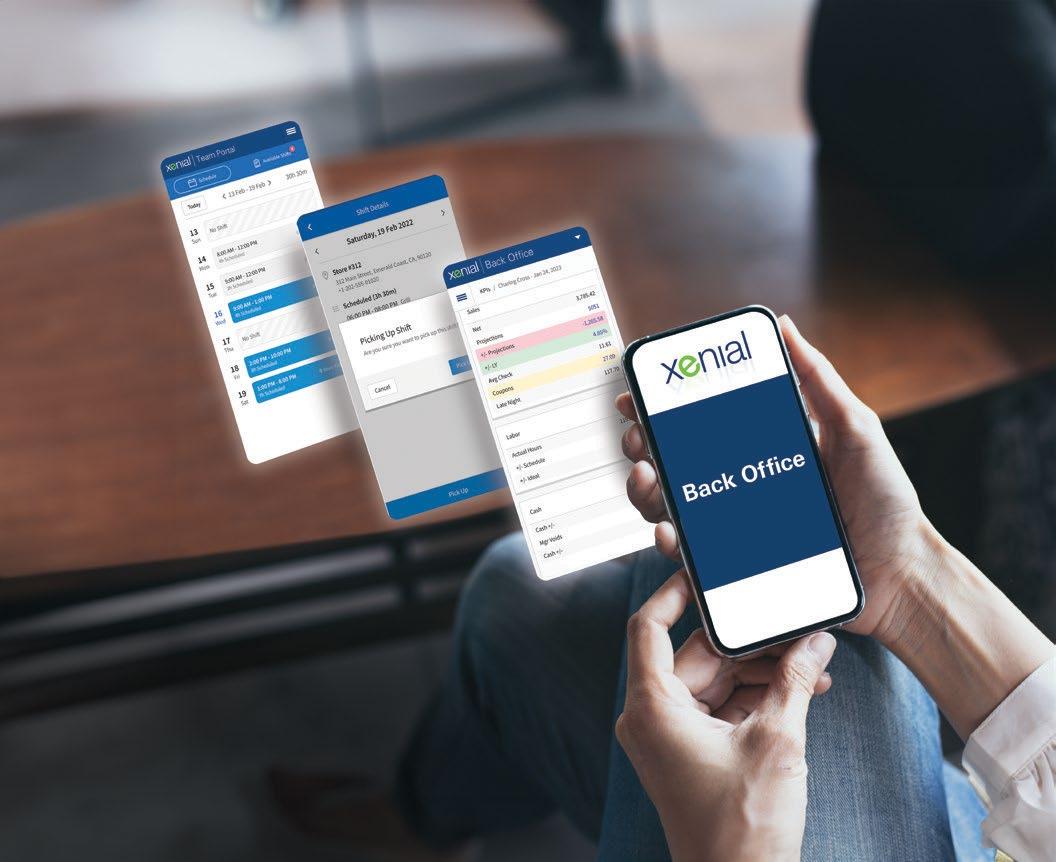



Nearly all of the 6,000 Burger King restaurants are owned and operated by independent franchisees like Trinity Corp., which runs seven Burger King locations across southeastern Kentucky. Recently, Trinity Corp. switched from manual to automated oil management at most of its restaurants. Making the move didn’t just improve food quality—it was a boon for the bottom line and workplace safety.
Addressing a Royal Pain
Burger King uses a custom blend of cooking oil and proper management of this oil, including filtering and disposing of it according to standard operating procedures (SOPs), is essential to delivering food with the taste and quality that customers expect.
“The only way I knew if oil was being correctly filtered and changed out was by visiting one of our restaurants to see the fryers in person,” said Mike Dole, director of operations for Trinity Corp. “But routinely visiting restaurants just wasn’t practical.”
Another issue was that disposing of used, hot cooking oil is a strenuous and hazardous task. Employees had to drain used oil from fryers into large buckets and then drag those heavy buckets outside to dispose of the oil in large bins. This manual work could lead to hot oil spilling and splashing onto employees or the floor, creating slip and fall hazards.
eliminated the manual handling of oil made investing in the technology an easy decision.
“A fully enclosed system that takes a physical and mental burden off our employees and can deliver savings by improving control over your cooking oil was a no-brainer for our restaurants,” Dole said.
Technicians installed new systems with added filtration components at six of Trinity Corp.’s locations. The systems deliver, store, filter, monitor and dispose of the oil used in the restaurants’ fryers.
Since automating, Trinity Corp. has increased profits 8% by realizing savings in key areas, including oil usage. Adopting automation helped the franchisee reduce its cost of goods by 6%.
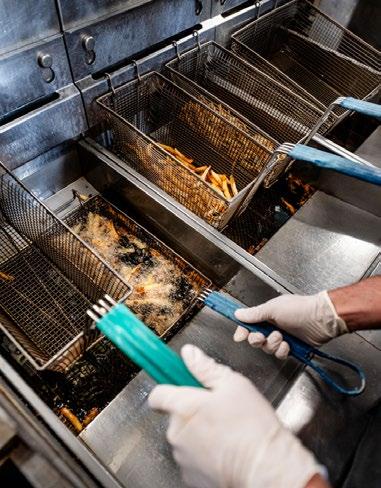
Dole empathized with employees who do this work, having done it himself more than 30 years ago in his first job at a restaurant.
“I still have scars on my hands from the burns that I got handling used oil,” he said. “But for decades, that’s just been the standard practice for changing oil. I didn’t want that for my teams.”
Dole discovered Restaurant Technologies’ automated approach at a conference. Learning how they


“With improved visibility and better adherence to the filtration schedule, we’re easily getting an extra two days out of our oil per fryer,” Dole said.
The benefits aren’t only financial, it has taken a literal load off employees’ hands and reduced potential exposure to hot oil.
Dole also views the high level of quality and consistency of the food being served as another reason for his restaurants’ success. Trinity Corp.’s restaurants average about 25% more guests per day than the typical Burger King, a statistic that hasn’t gone unnoticed at the corporate level.
“At all of our Burger King restaurants, we pride ourselves on delivering a good customer experience,” Dole said. “From having good employees who provide exceptional customer service, to serving consistently good food. There’s no question that these automated systems have helped us improve the quality of our food, and that’s helped bring in both repeat guests and new guests to our restaurants.”
To learn more, visit rti-inc.com/burger-king or call 866-749-4164
Restaurant Technologies Inc. is a sapphire partner member of National Franchisee Association.

2024 NFA Meetings 3
Allen Industries 35 800-976-2553 BK@allenindustries.com
Bixolon 8 858-764-4580 www.bixolonusa.com
Blue Triton Brands 41 800-274-5282 www.purelifewater.com/quality
BURGER KINGSM Foundation 32 bgarcia2@whopper.com www.burgerkingfoundation.org
Comcast Business 45 267-283-8261 RBI_Group@Comcast.com
Ecolab 45 800-529-5458 www.ecolab.com
Elevanta Health 5 678-797-5160 www.elevantahealth.com/nfa
Gycor International 39 800-772-0660 www.gycorfilters.com
Great Lakes Label 6 844-428-1471 www.greatlakeslabel.com
Hall Financial Advisors 9 866-865-4442 www.hallfa.com
Keurig Dr Pepper BC 770-789-8266 josh.hanley@kdrp.com
Lancer Worldwide 10 800-729-1500 www.lancerworldwide.com/flame Lockton Affinity IF 844-403-4947 www.Elevanta.LocktonAffinity.com
National Franchise Sales 11 949-428-0492 md@nationalfranchisesales.com
Panasonic Connect North America 17 1-877-726-2767 option 2 www.na.panasonic.com
PARTech 37 619-333-5060 X: 8273 www.partech.com rapid! 15 888-828-2270 www.rapidpaycard.com



Restaurant365 27 949-652-7800 www.restaurant365.com/burger-king Restaurant Technologies 15 954-612-8086 www.rti-inc.com/burger-king
Simplot 7 704-907-6522 www.simplotfoods.com
The Coca-Cola Co. 13 404-852-5399 skmiller@coca-cola.com
The Hershey Co. 9 704-604-0745 www.hersheyfoodservice.com
Tyson Foods 7 410-340-3974 www.tysonfoods.com UPShow 3 419-261-1802 www.upshow.tv
Upside 8 303-995-0088 www.upside.com Welbilt 3 318-218-2775 scott.baillargeon@welbilt.com
Xenial 47 800-253-8664 www.xenial.com
* IF=Inside Front, IB=Inside Back, BC=Back Cover
3 Aug. 9 September 4 Oct. 4 December
FLAME, Issue 3 will be published in September 2024. We want to highlight any news or events associated with our members. If you have ideas for potential stories, please contact communications@nfabk.org or 678-797-5165 by Aug. 2. Our editorial staff can assist in writing the story for you.
